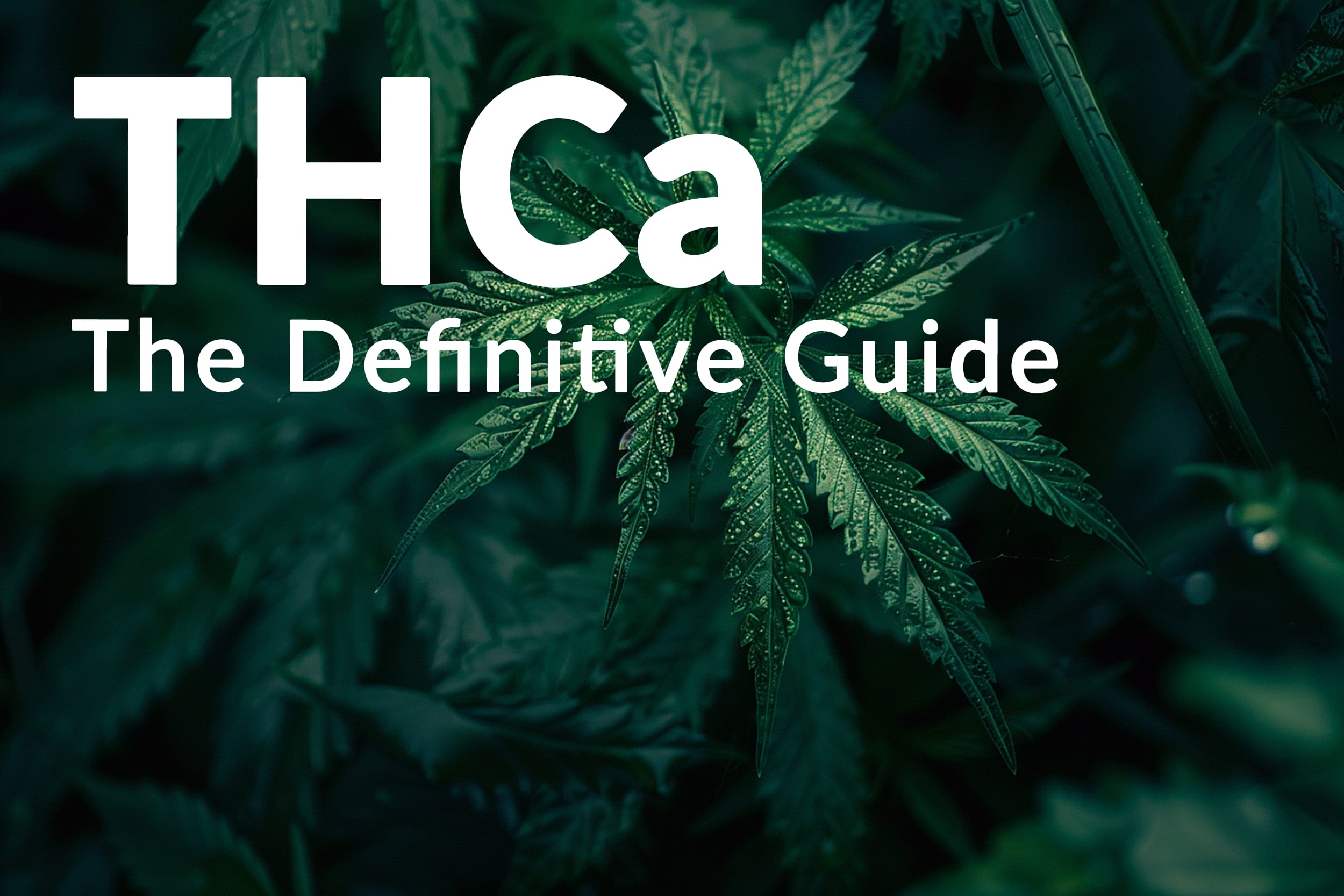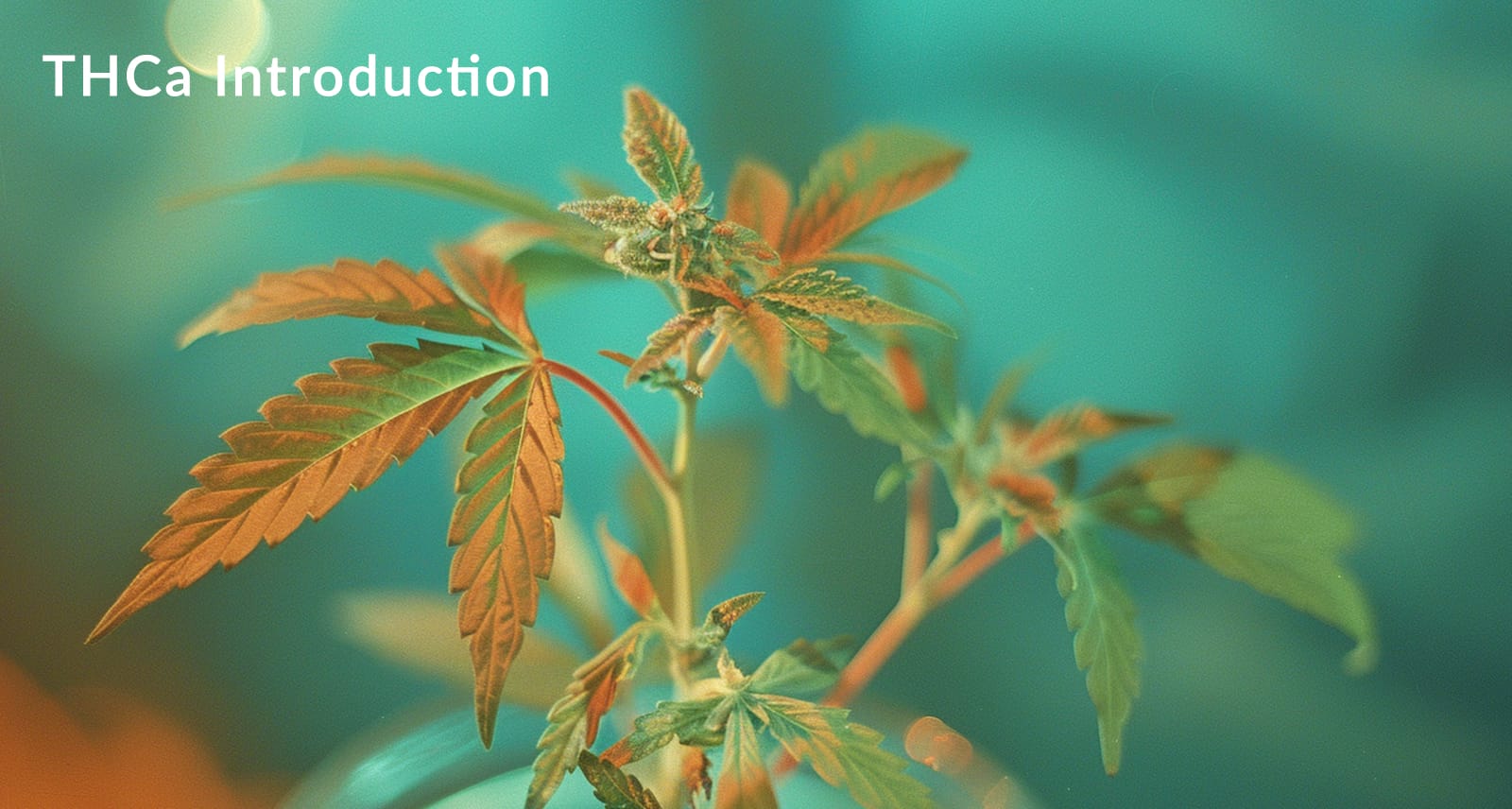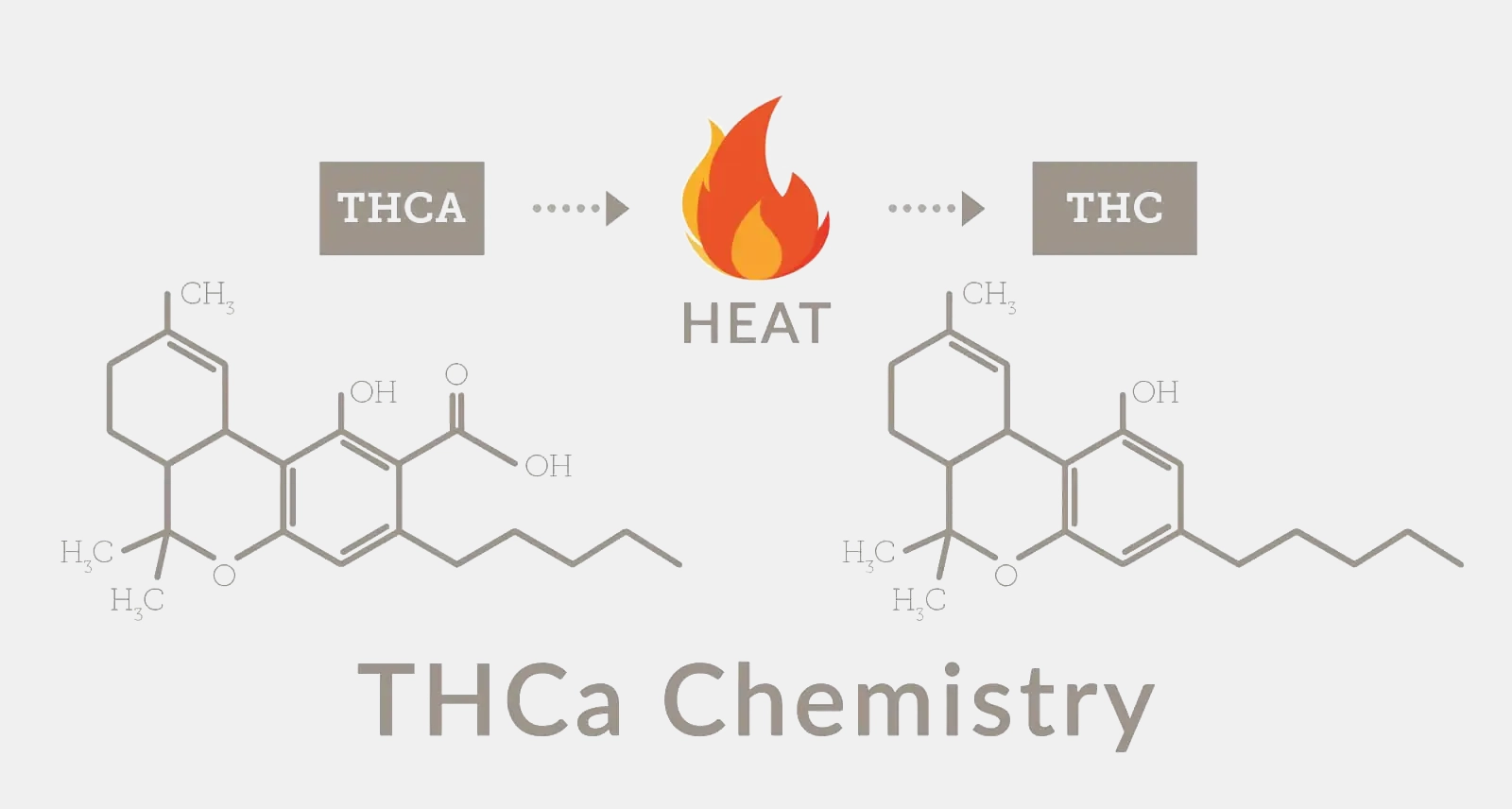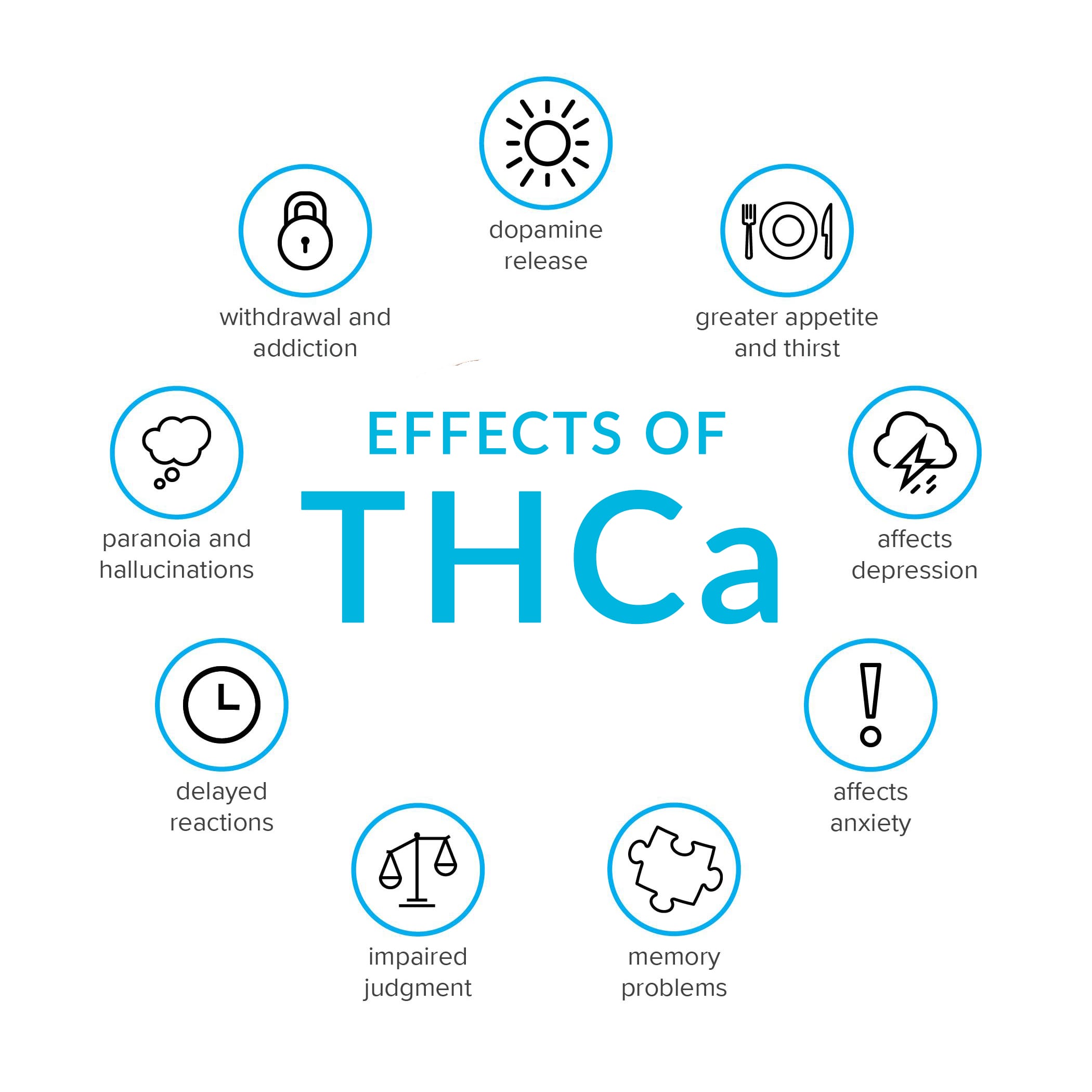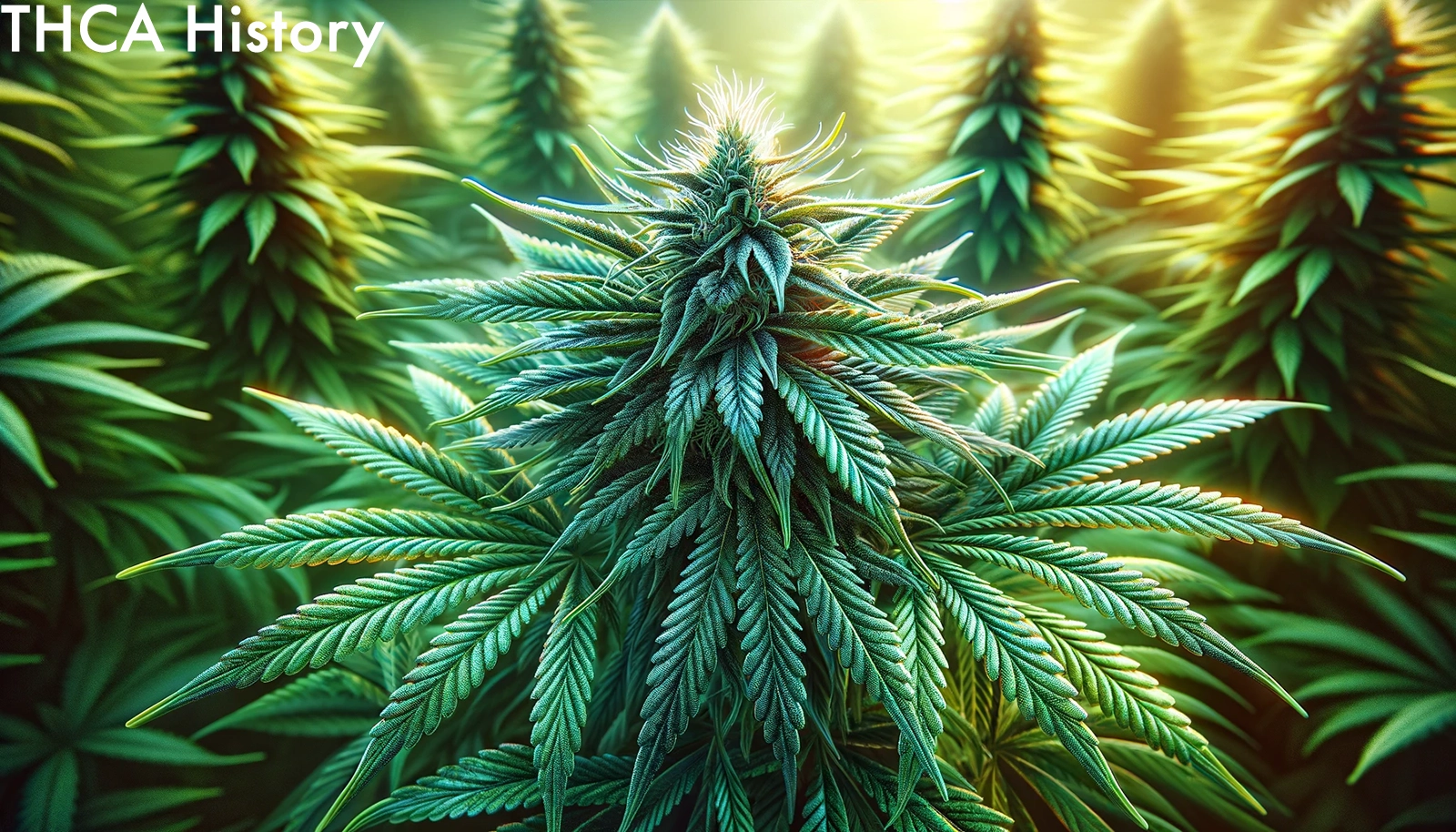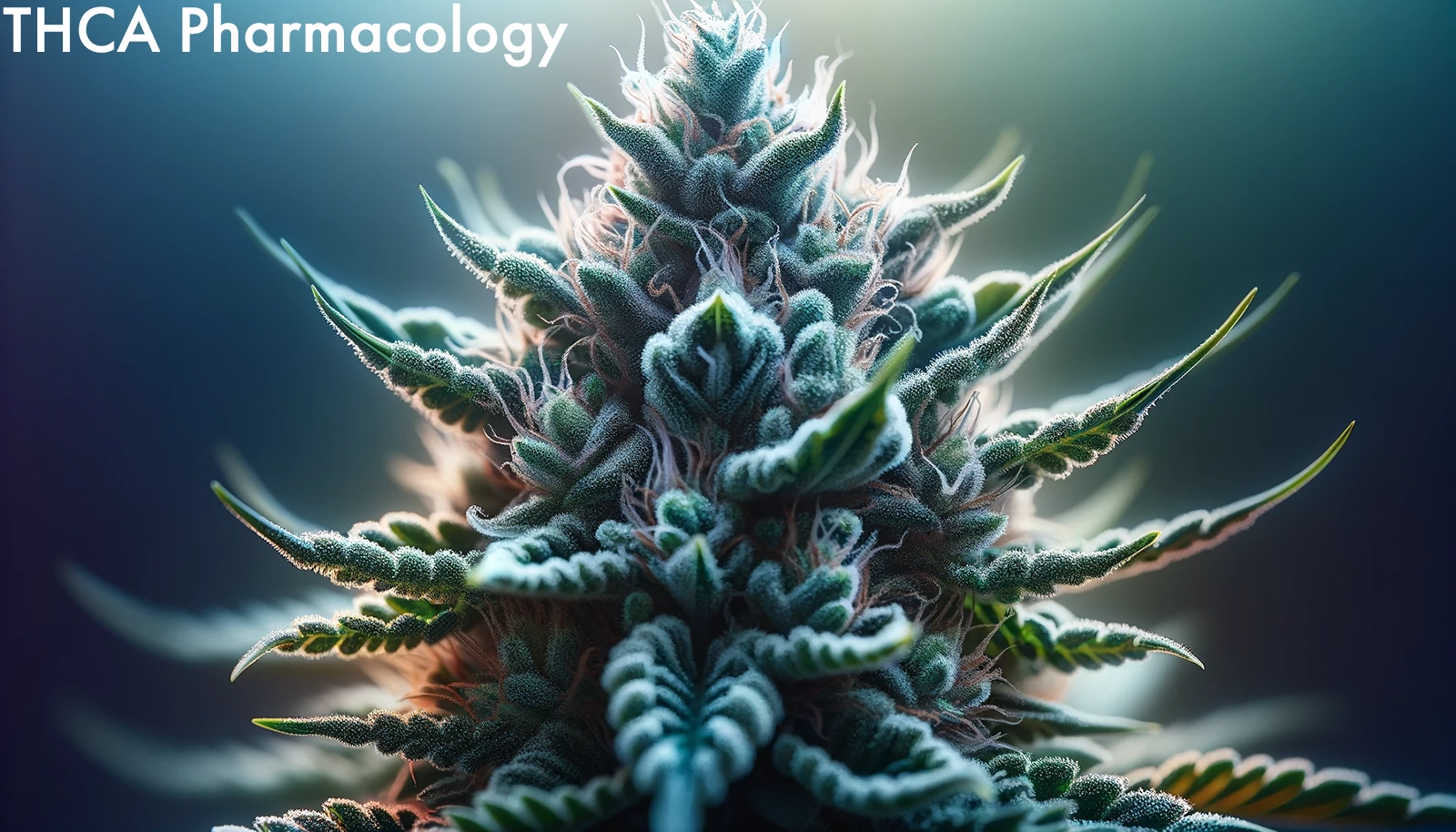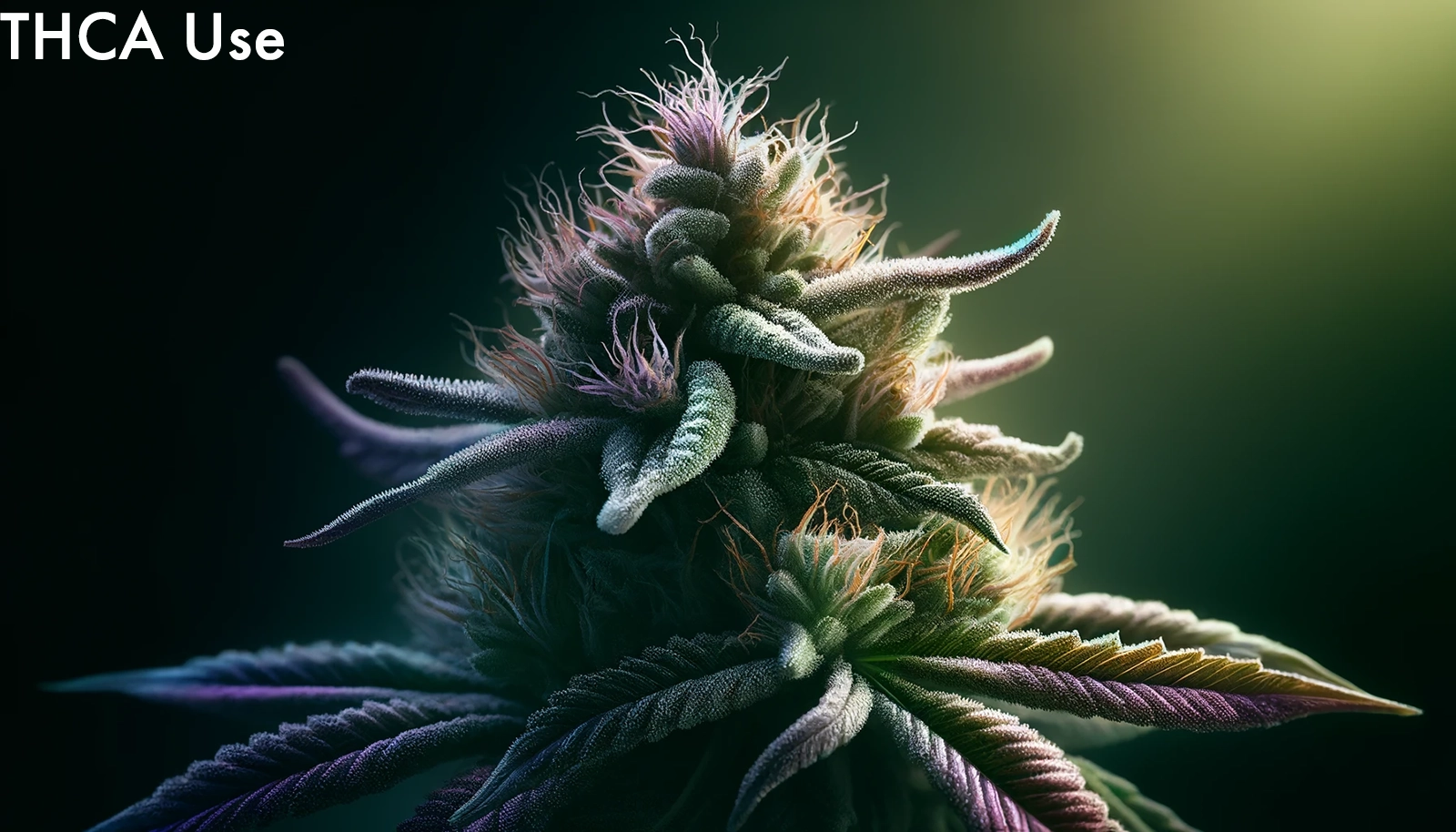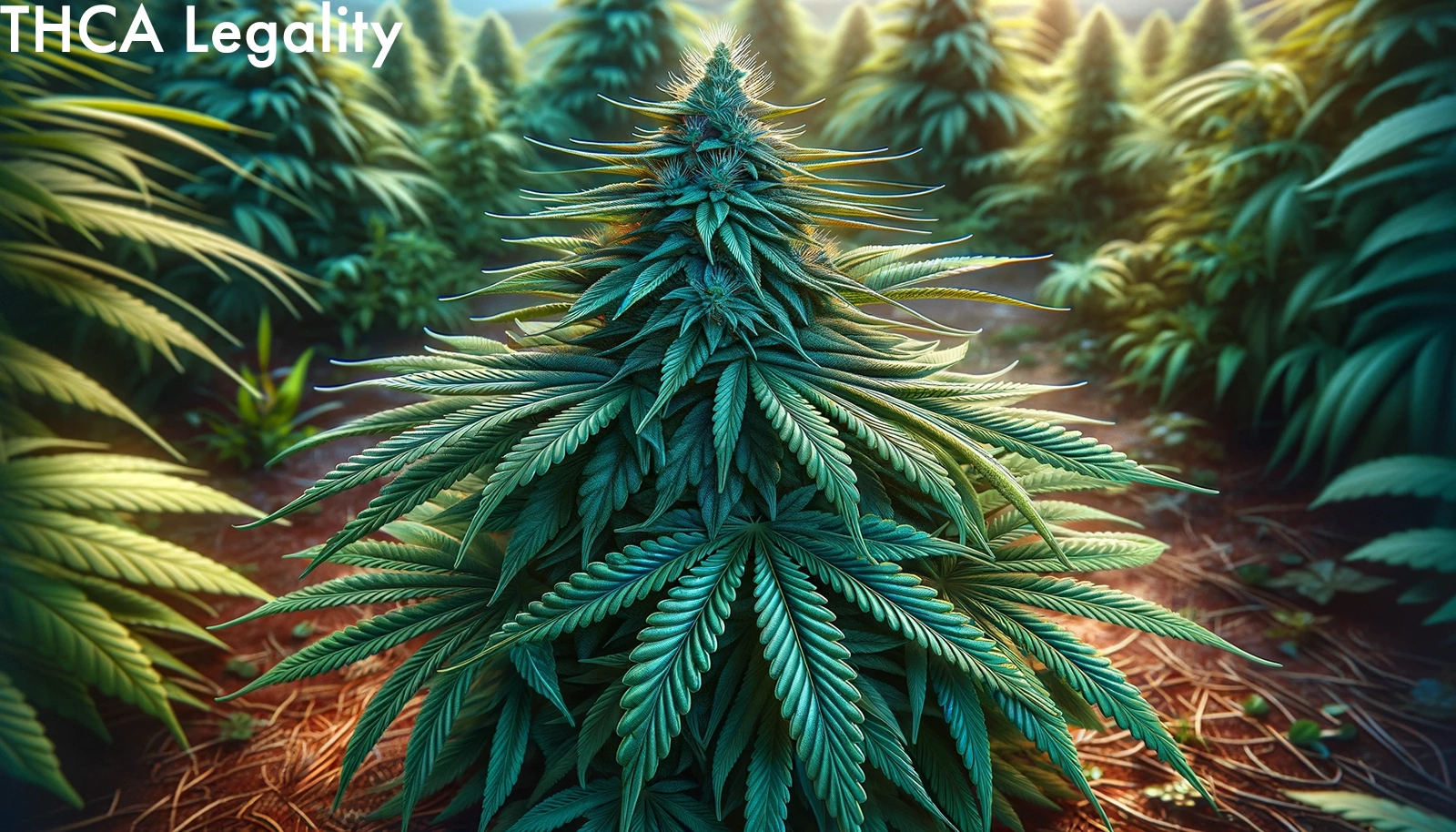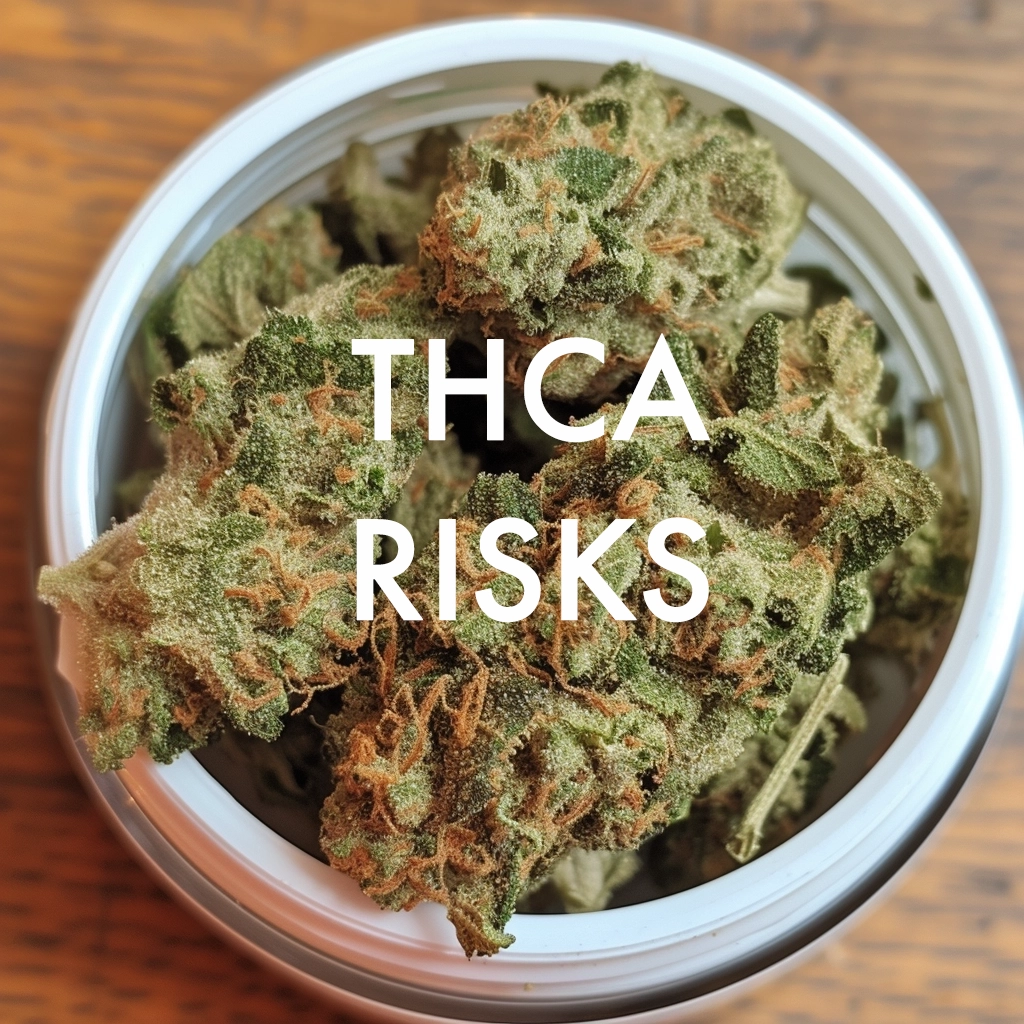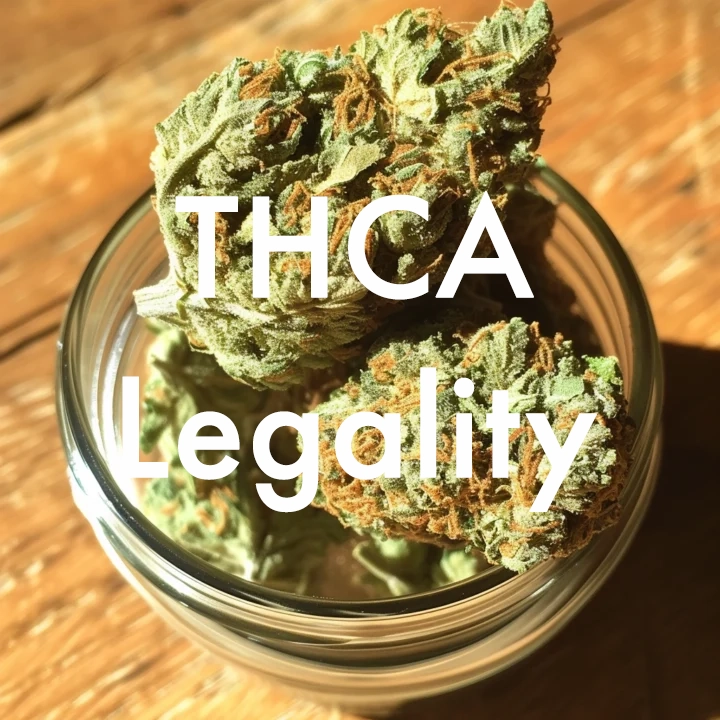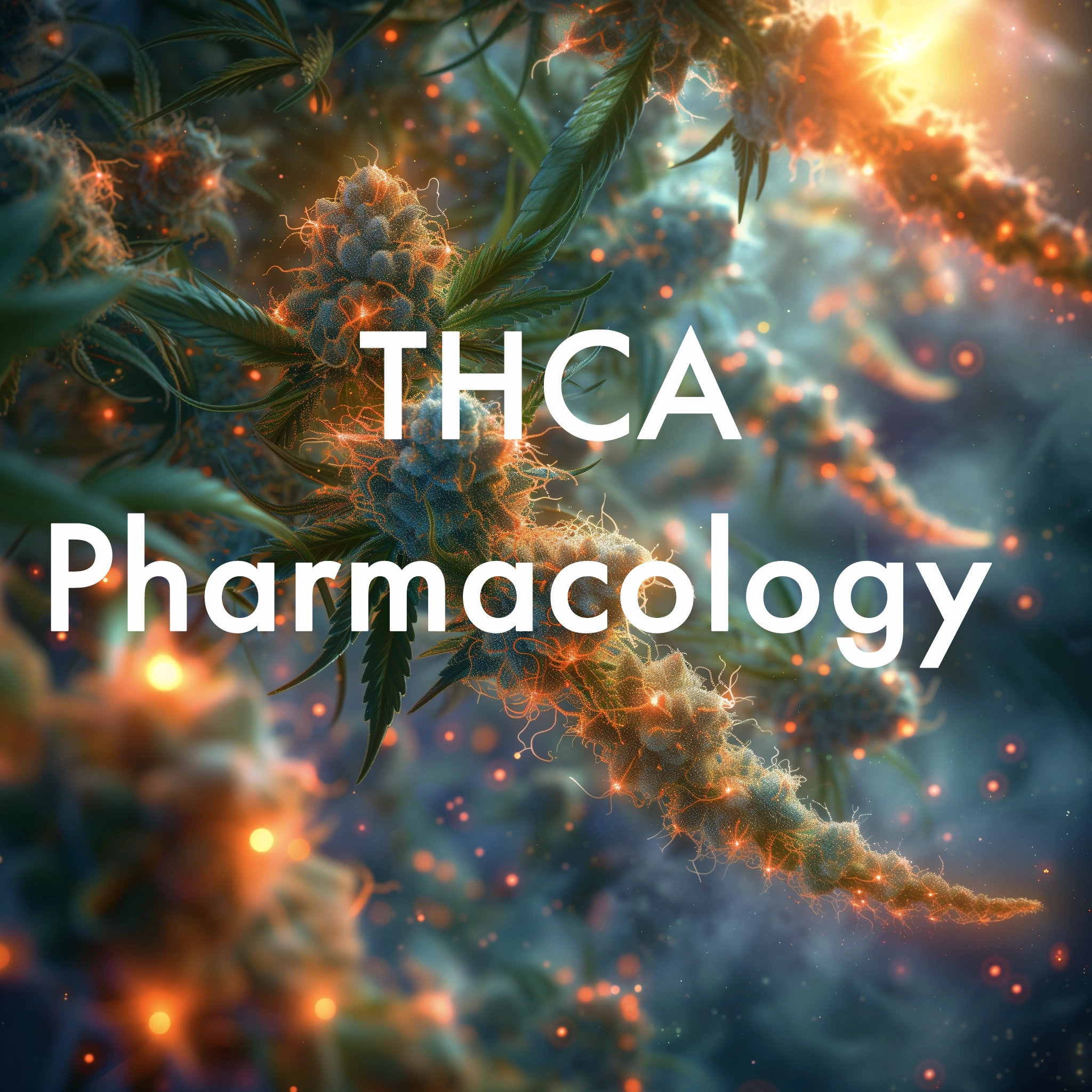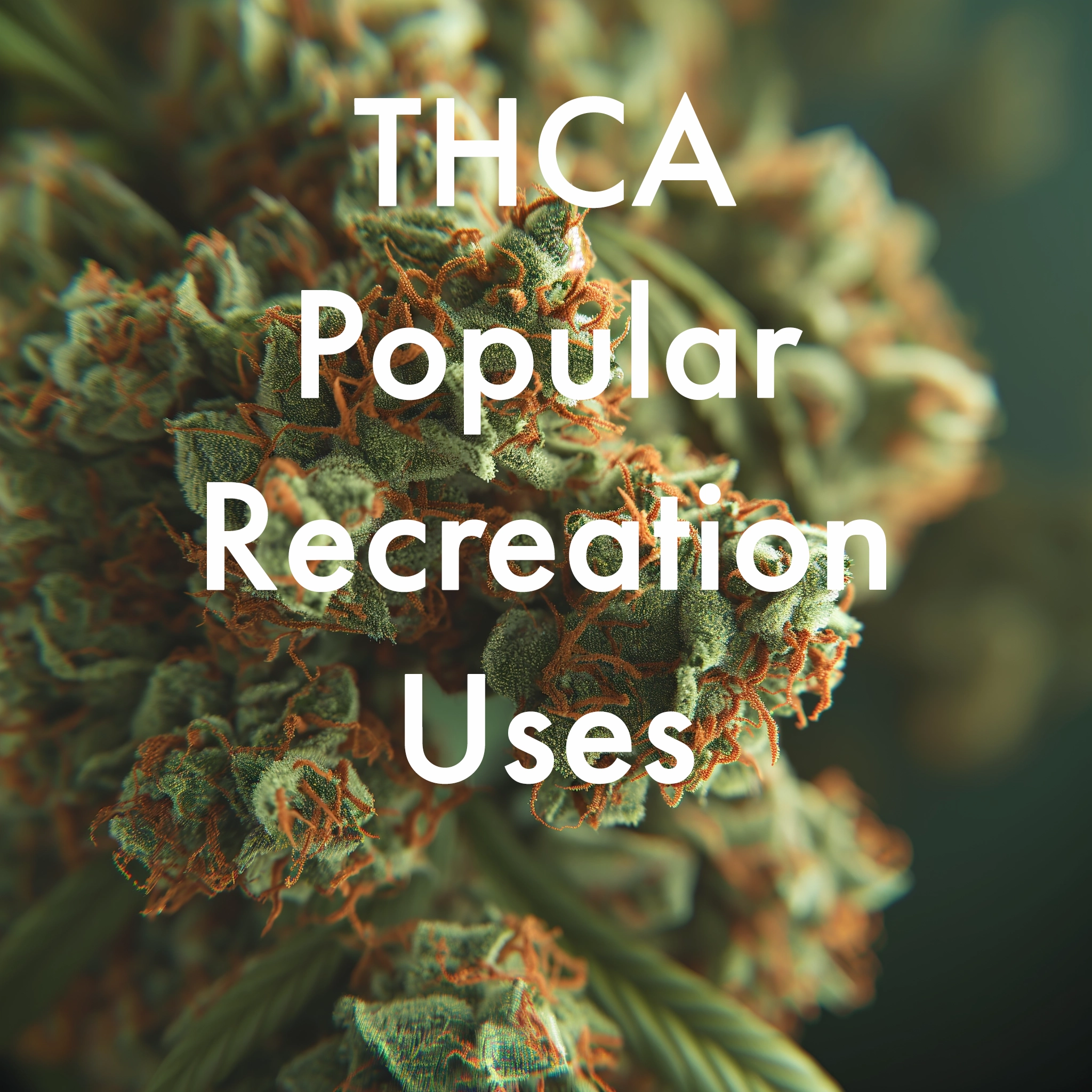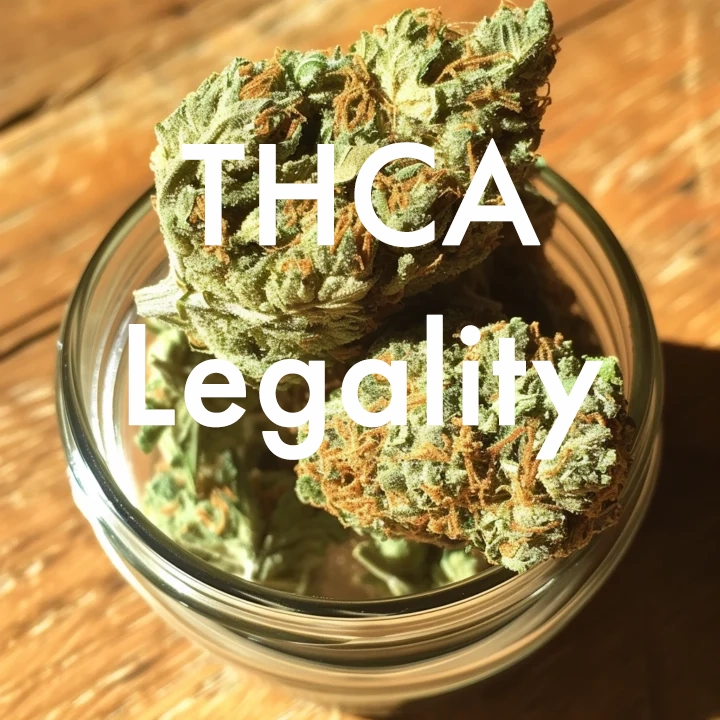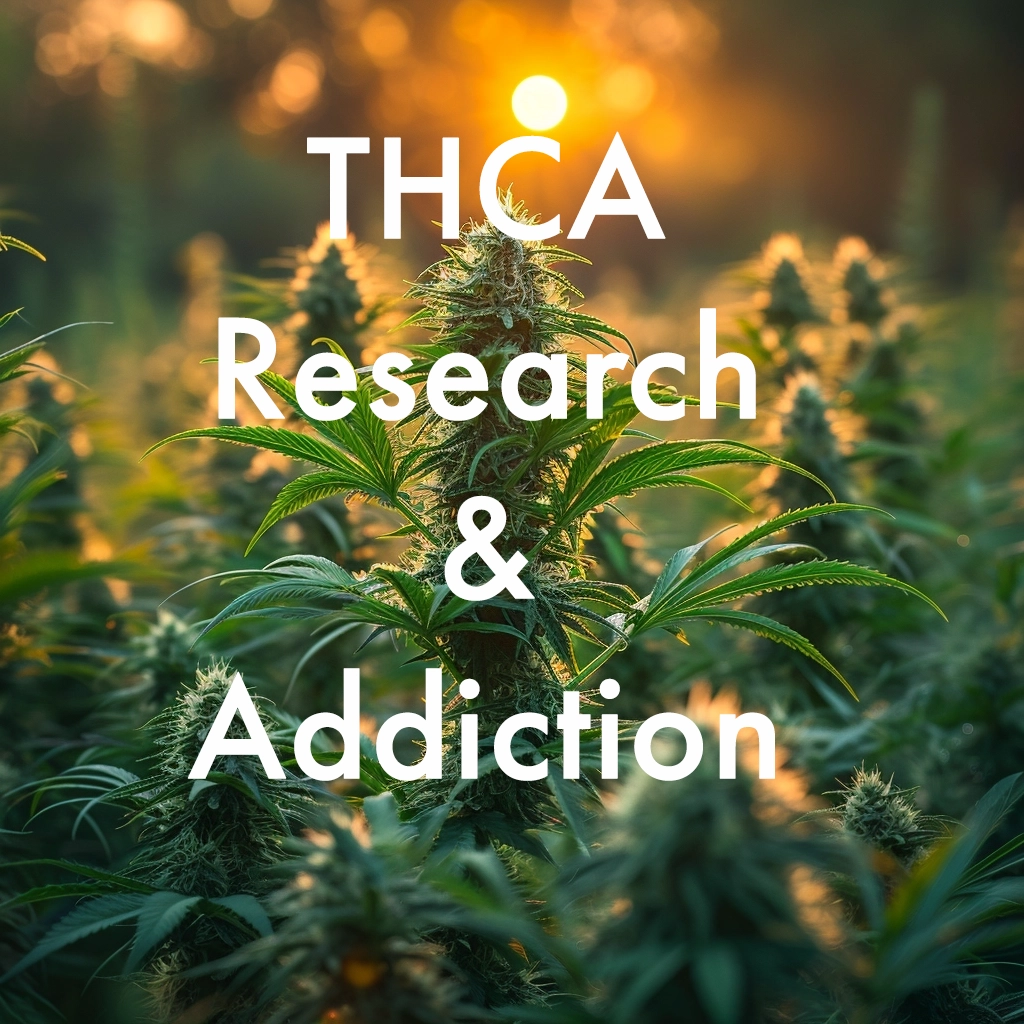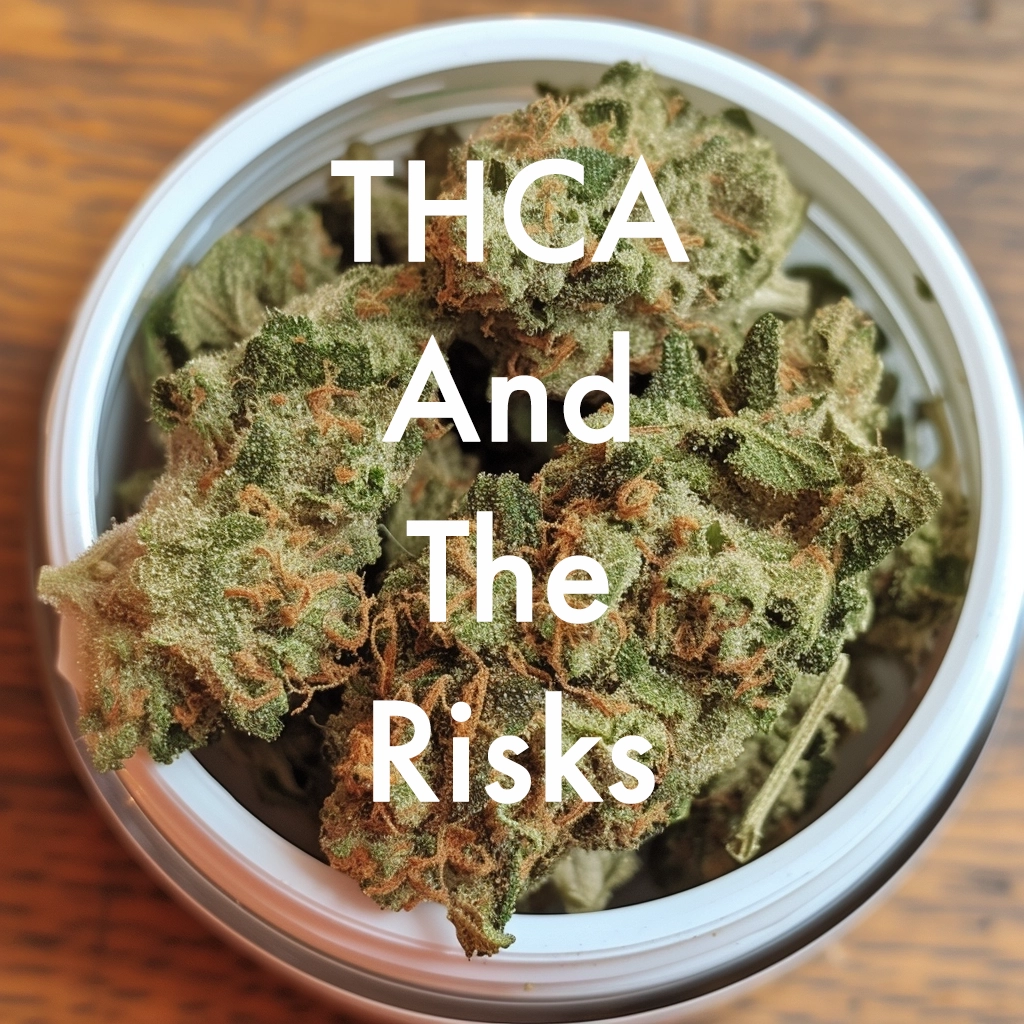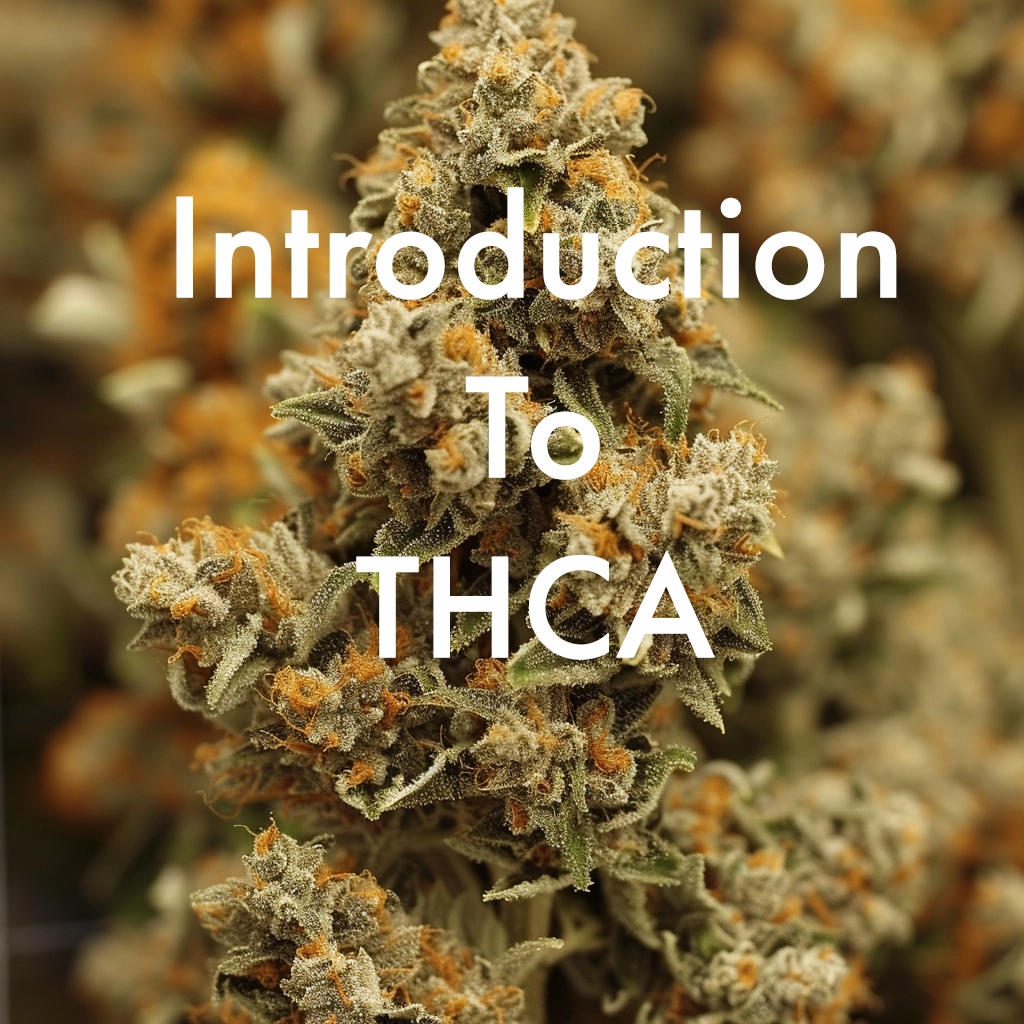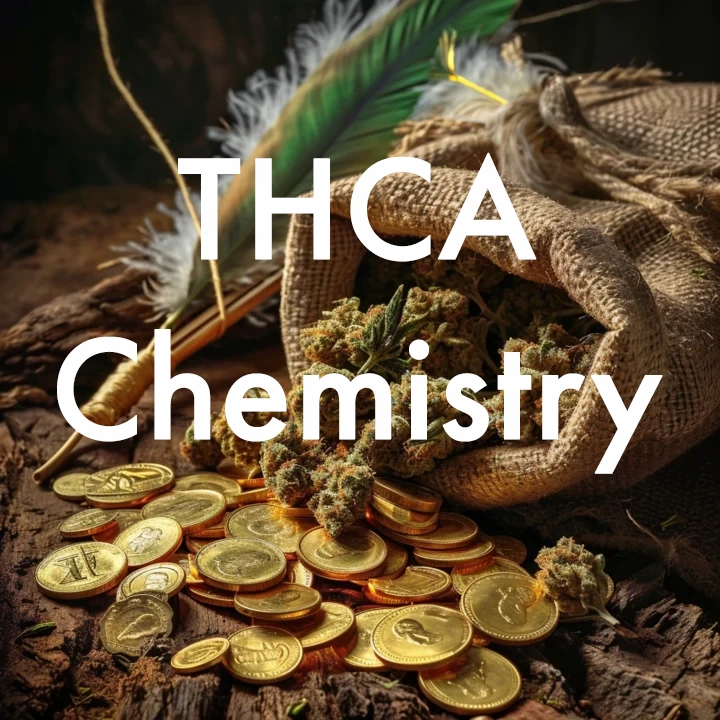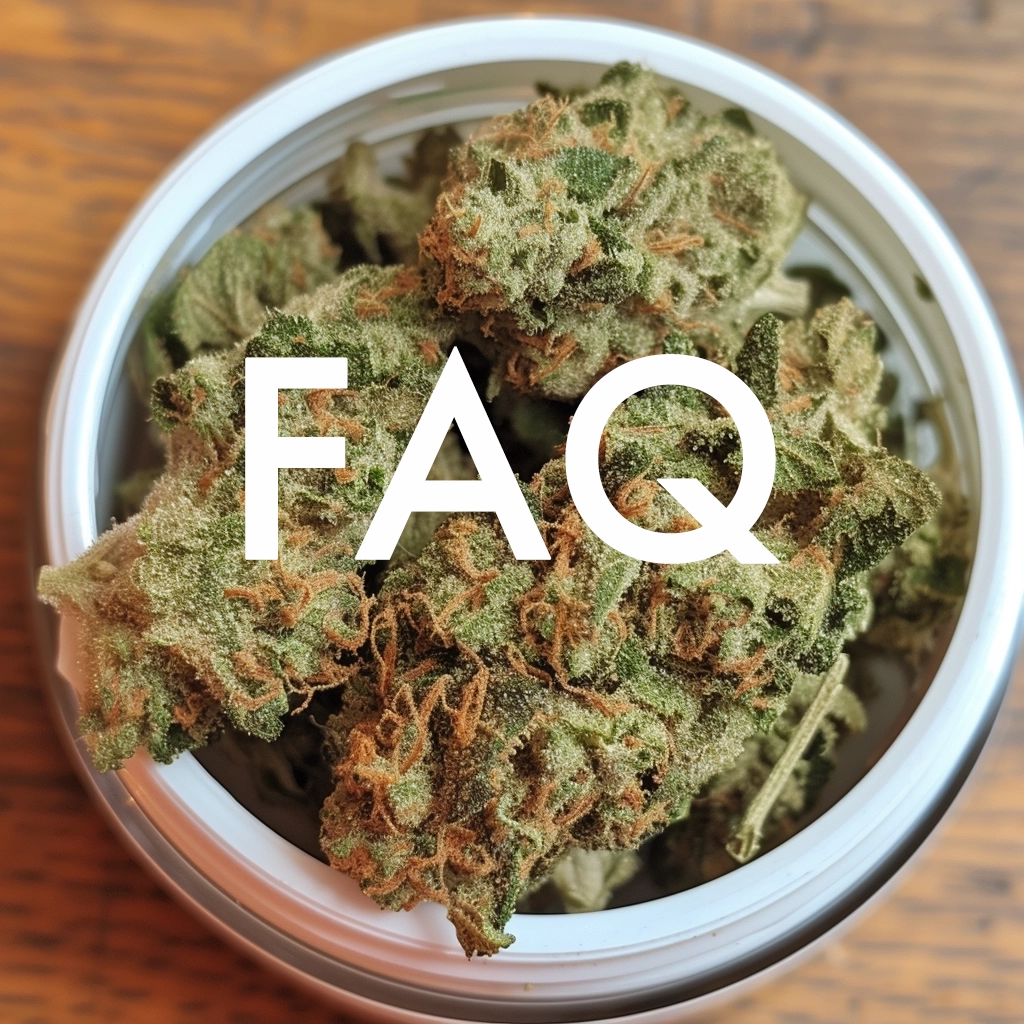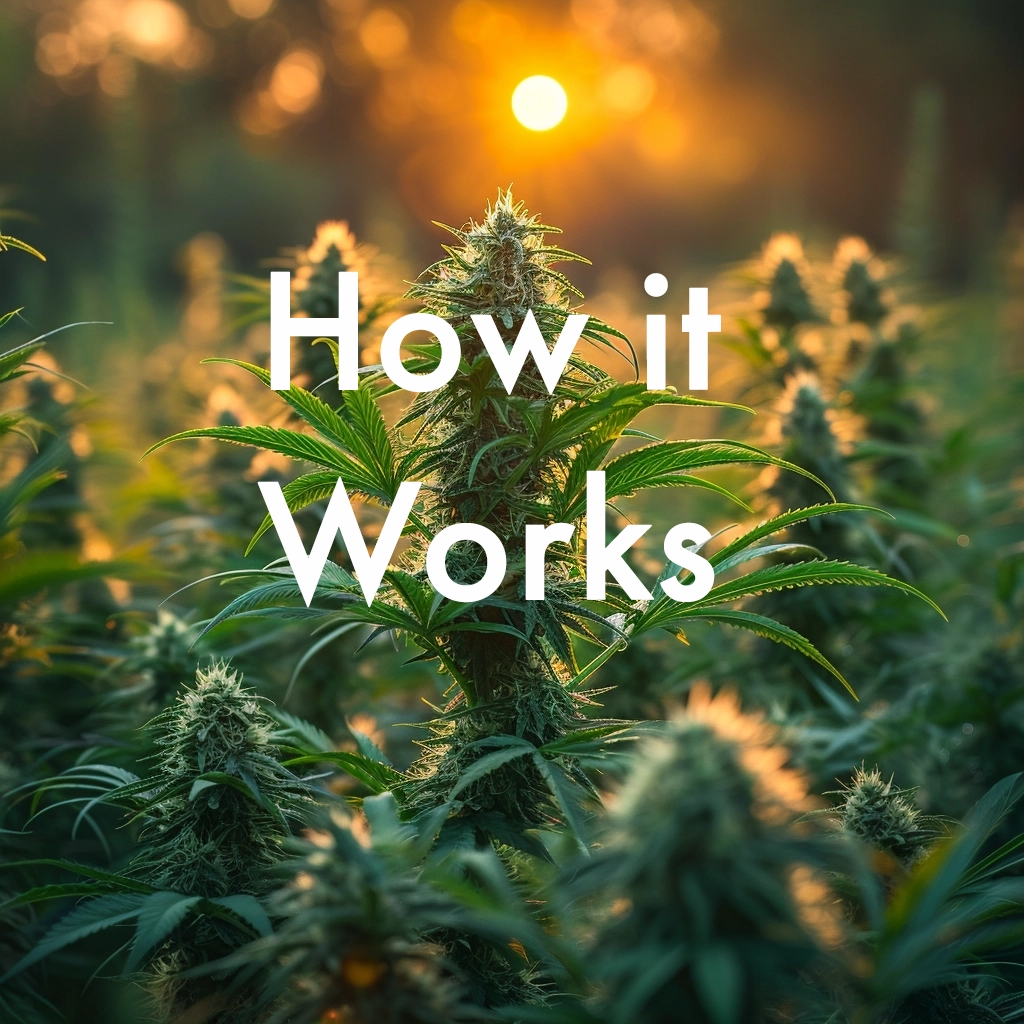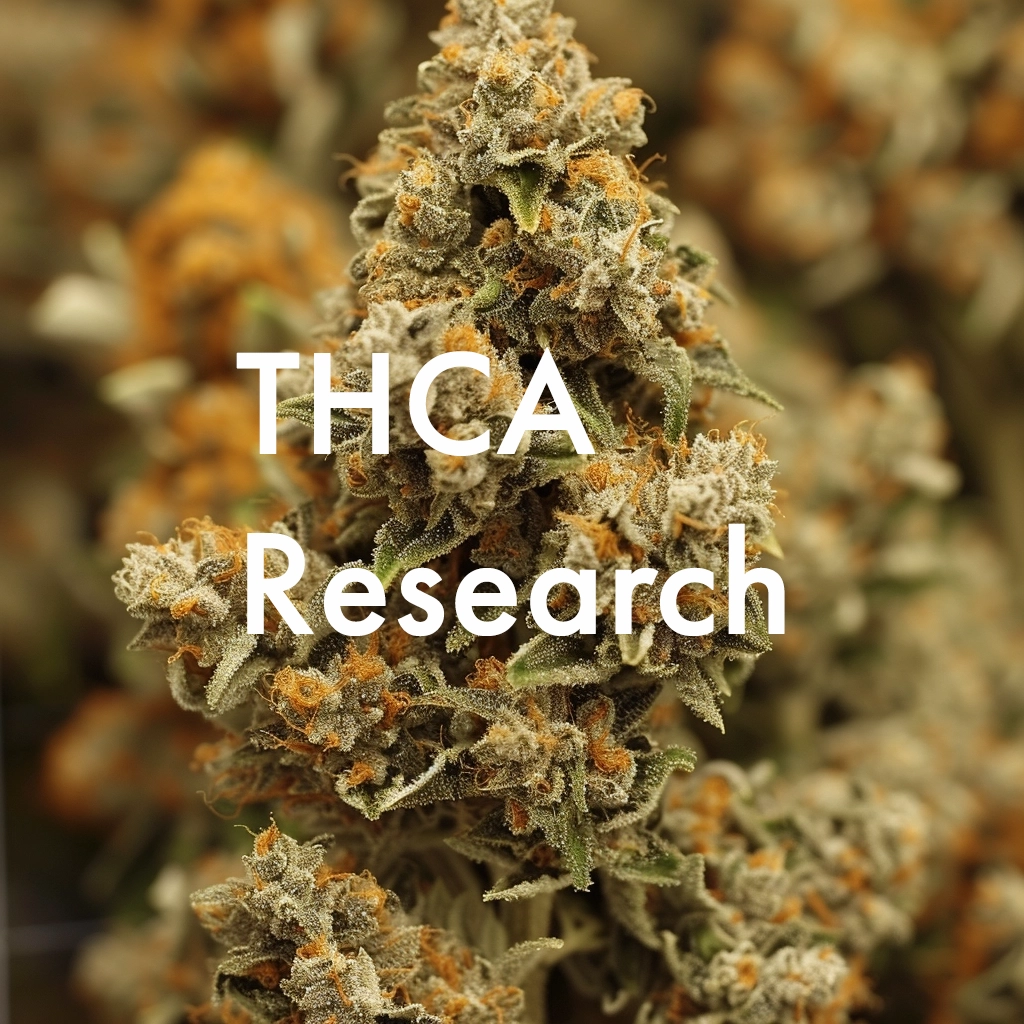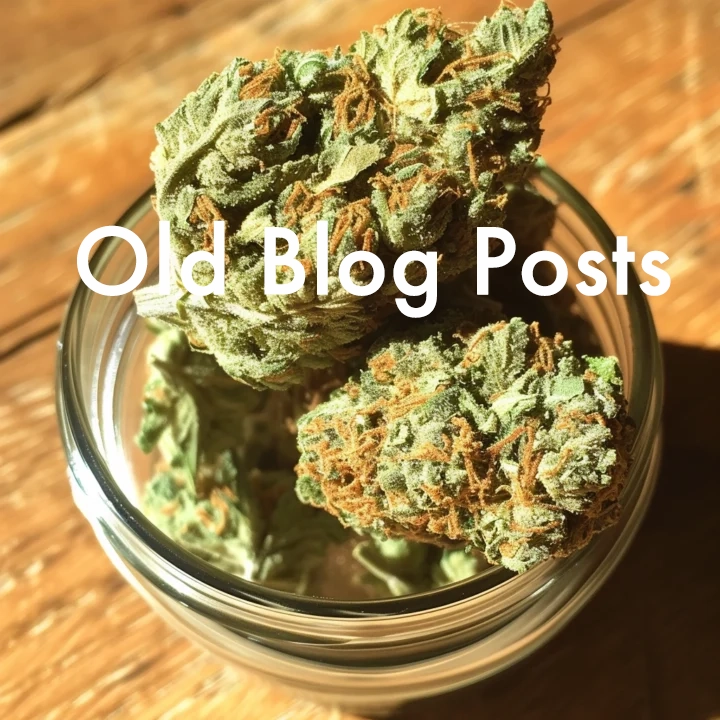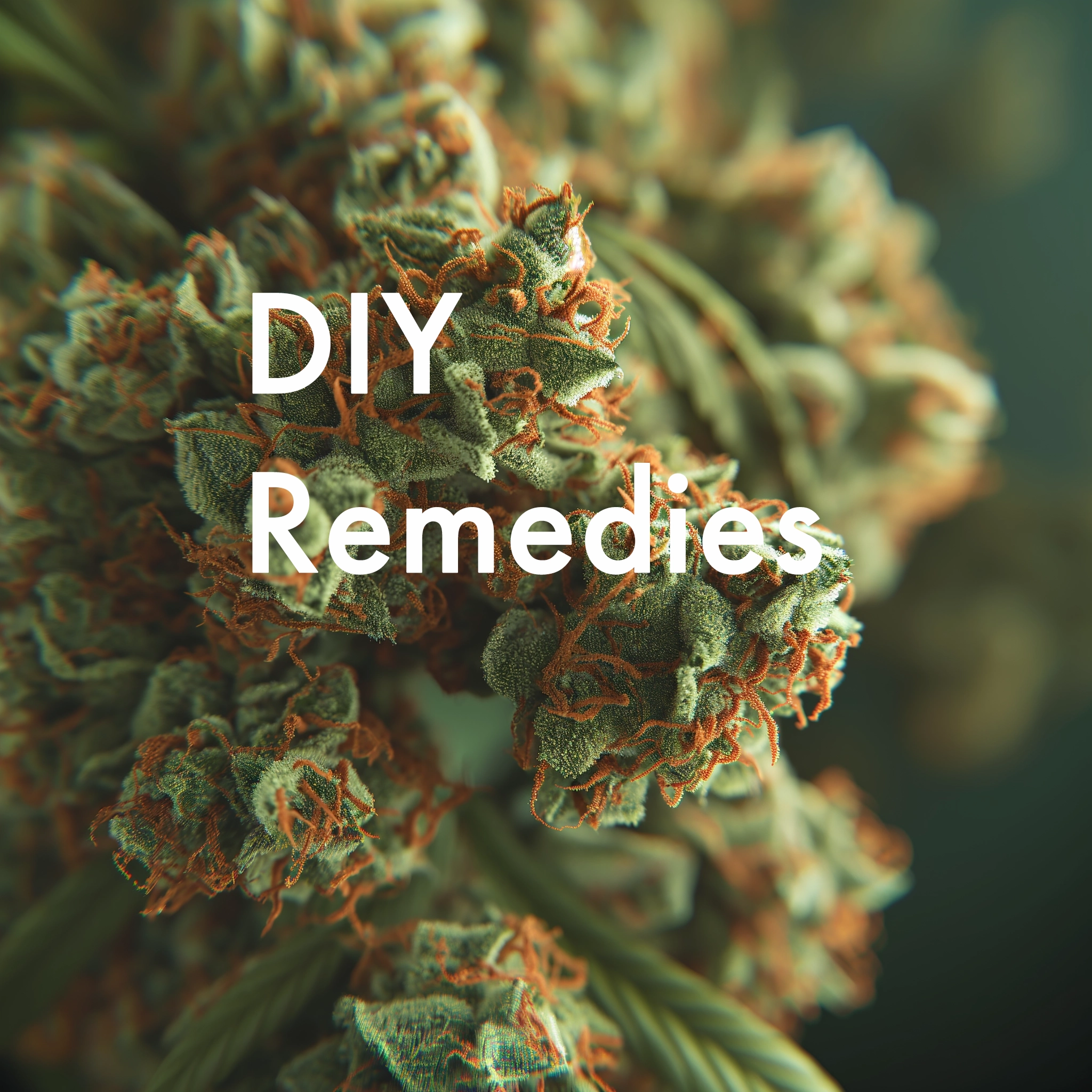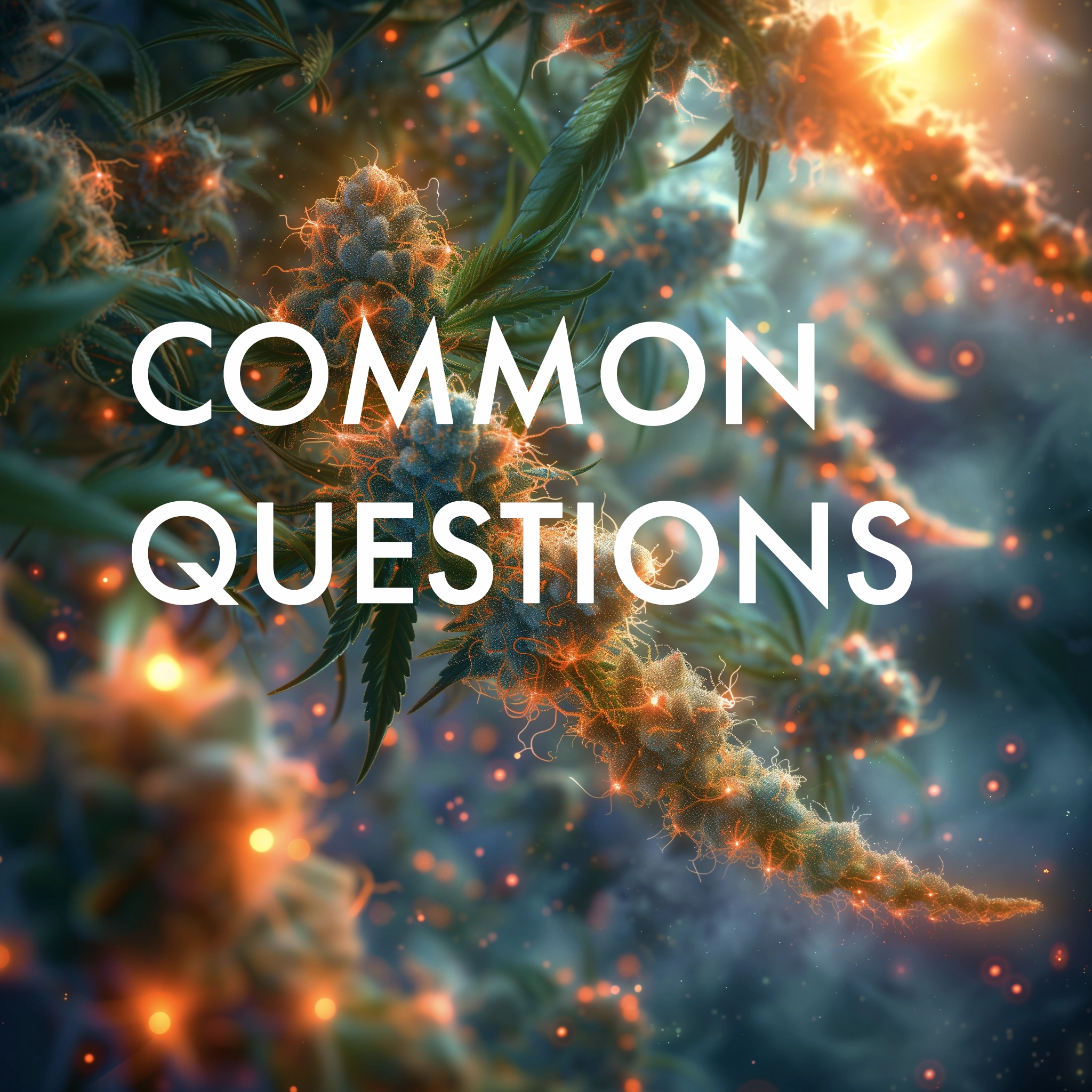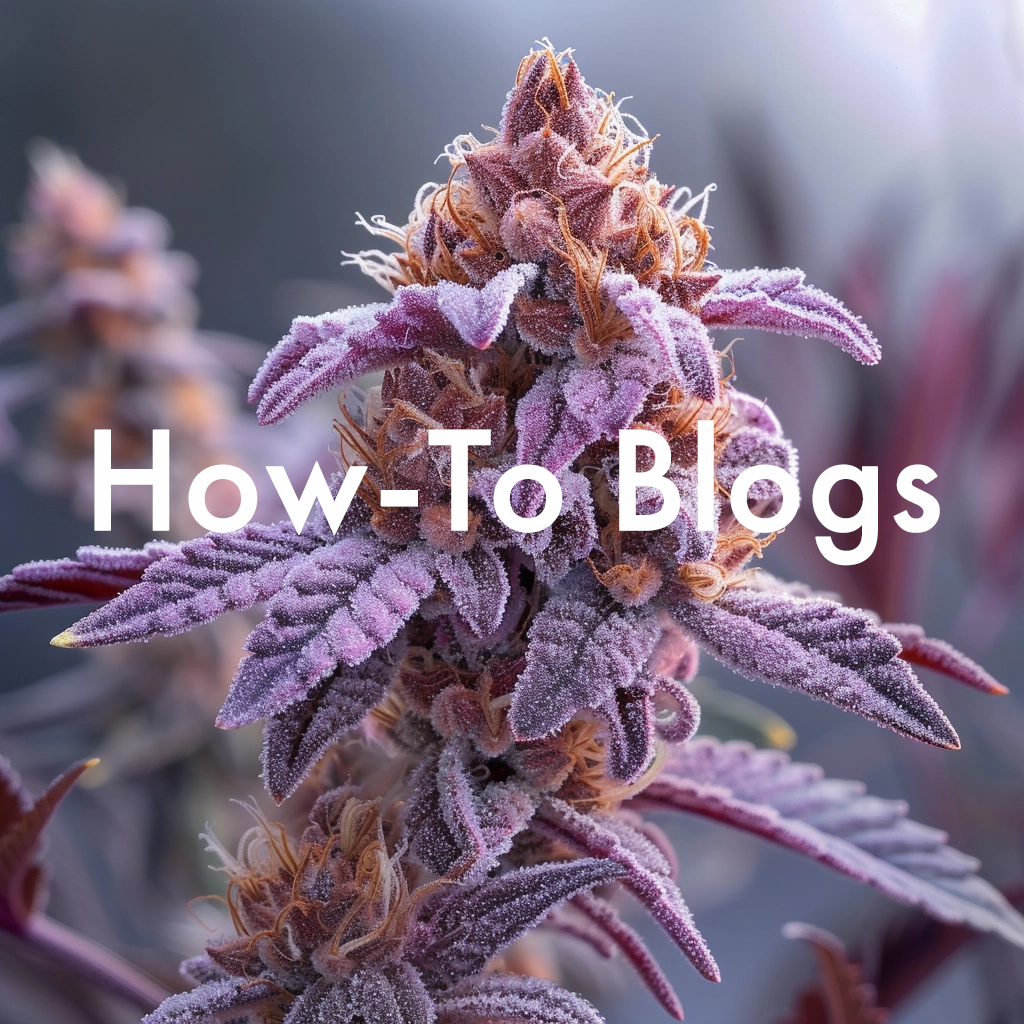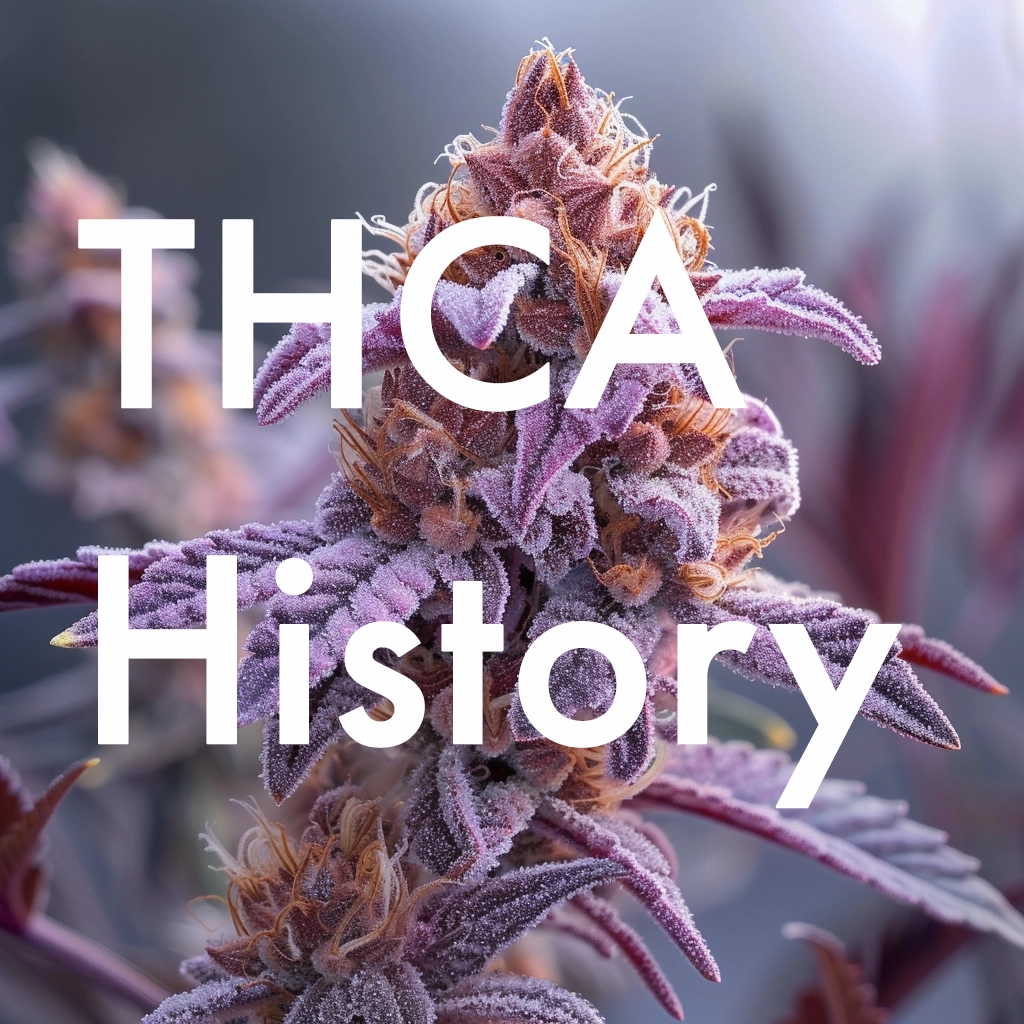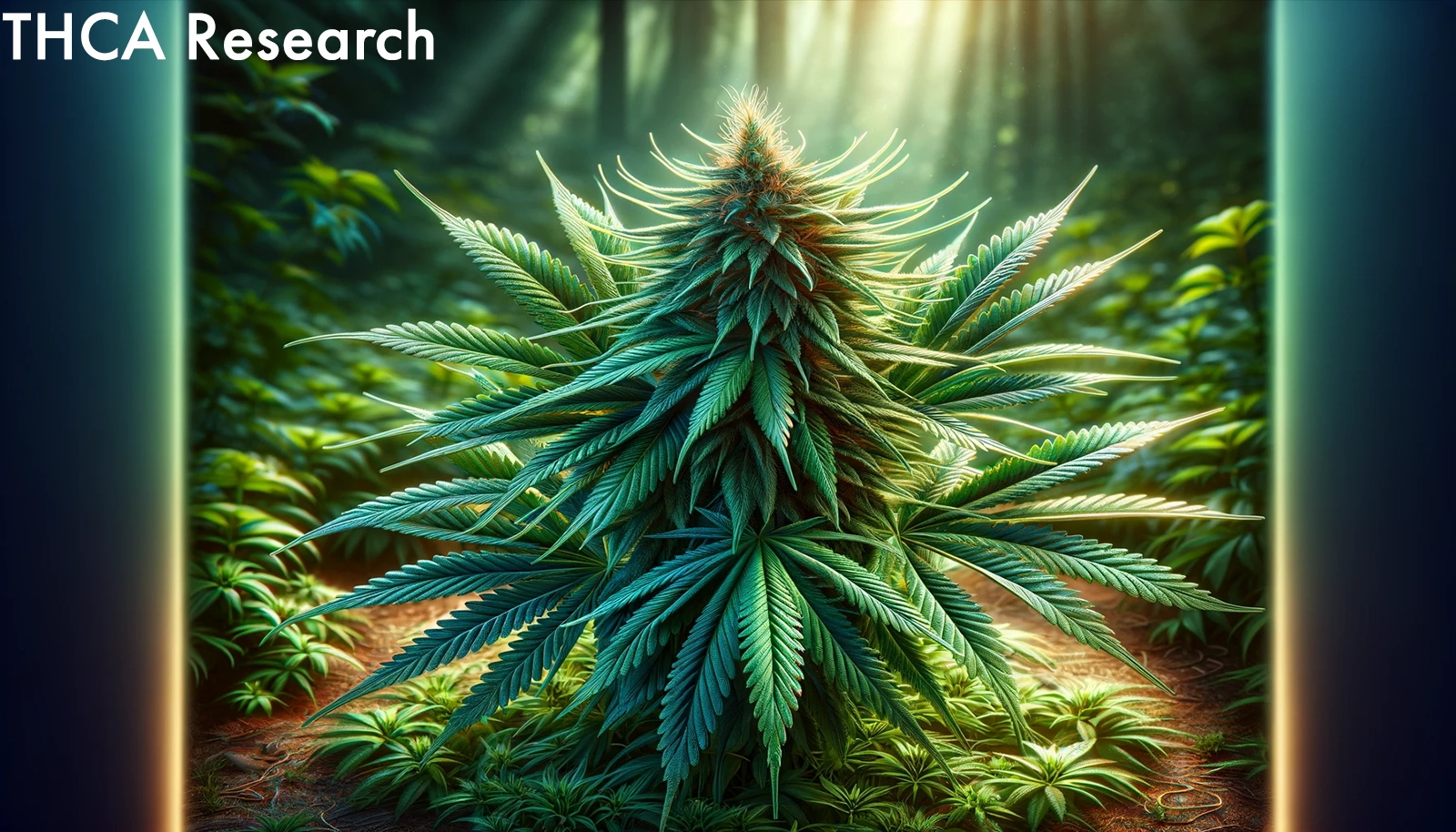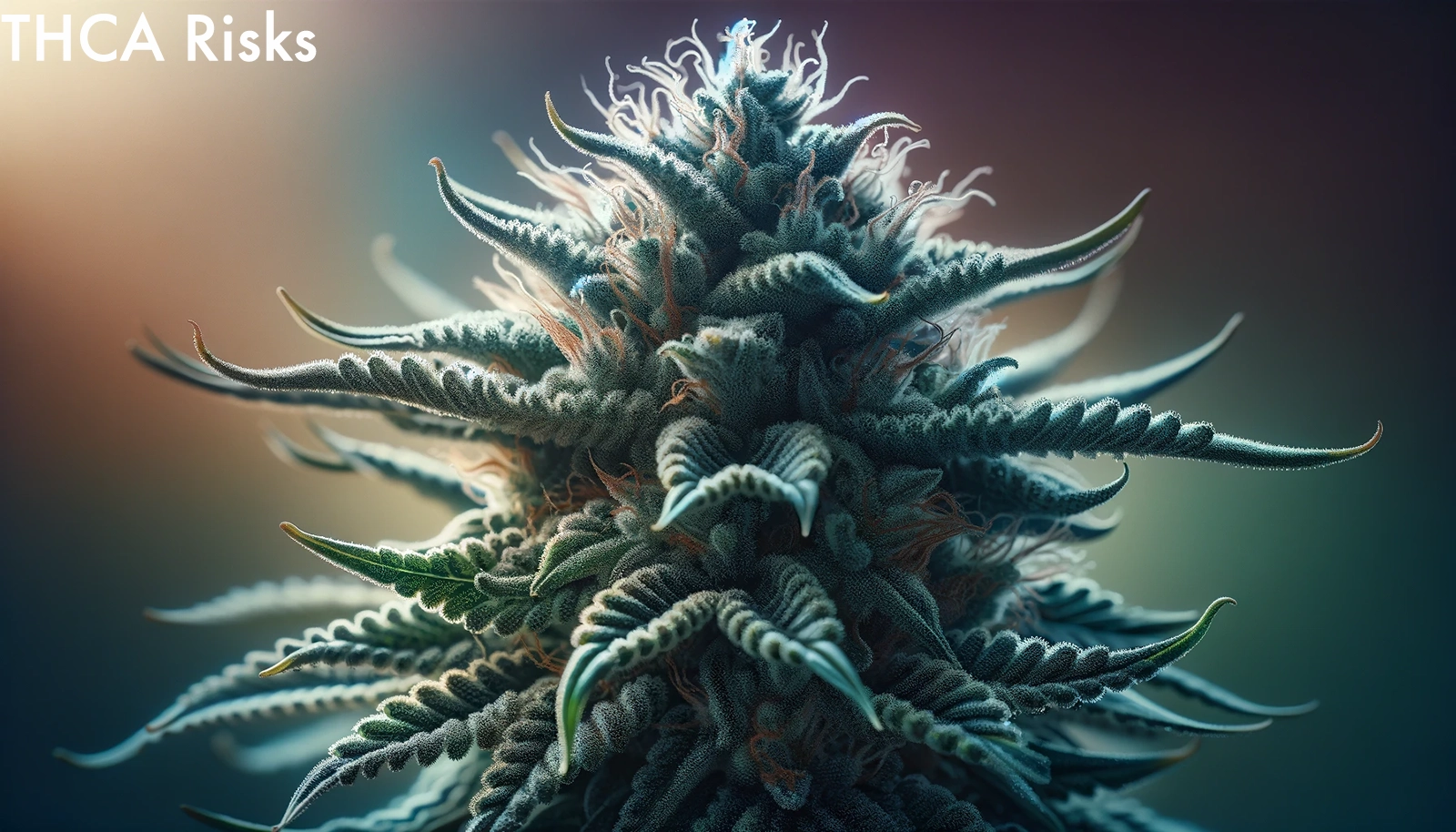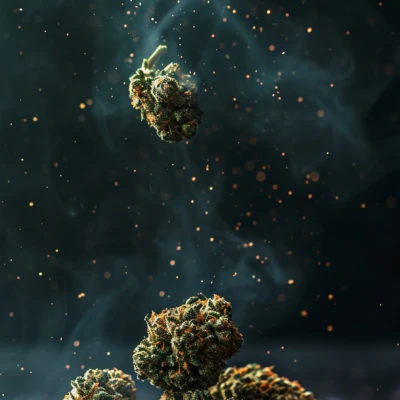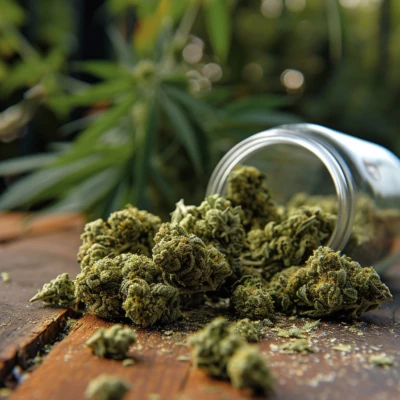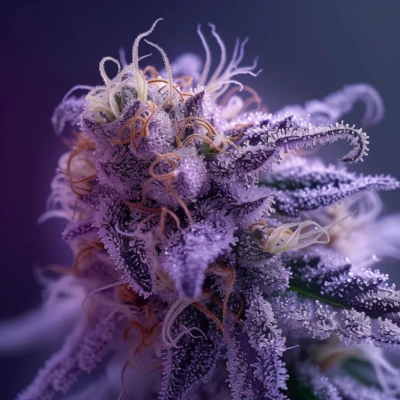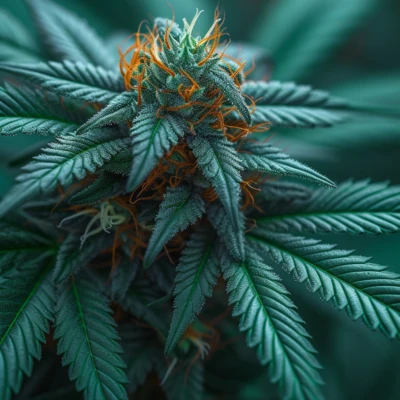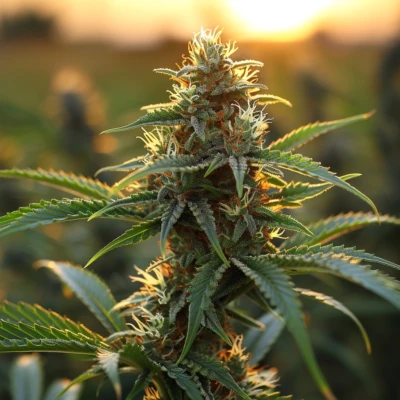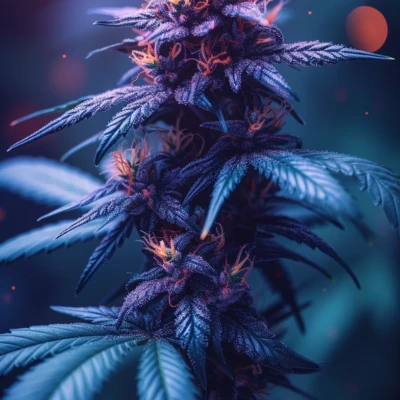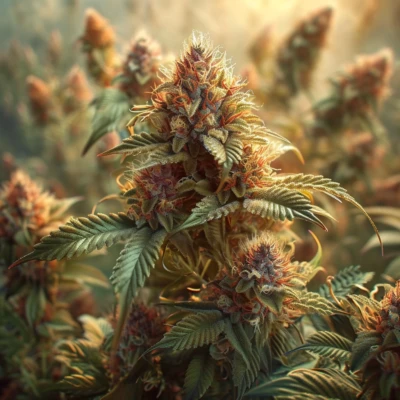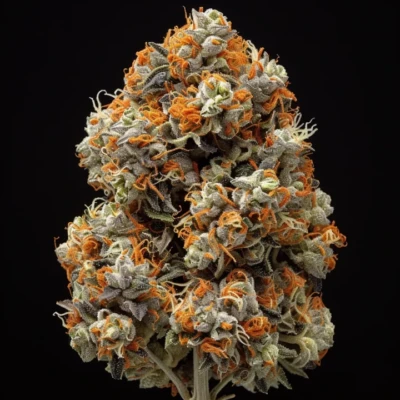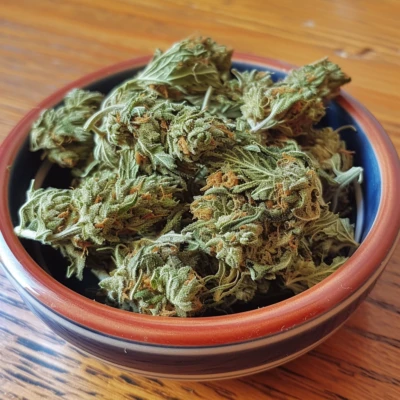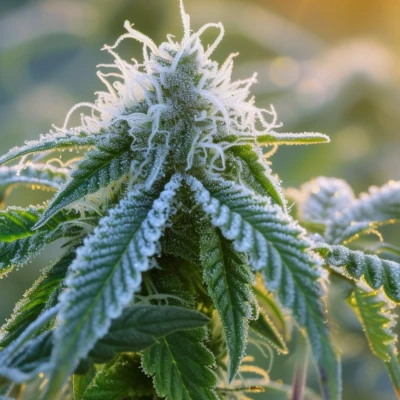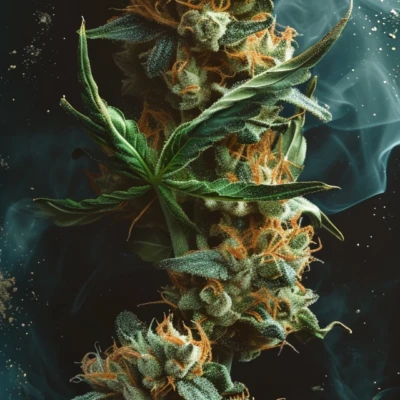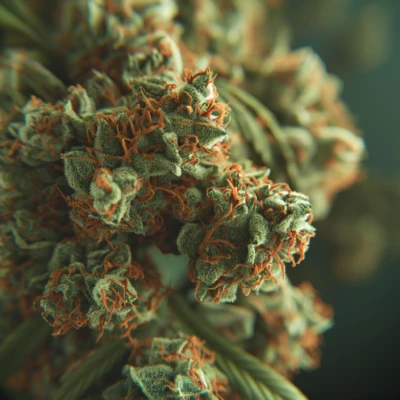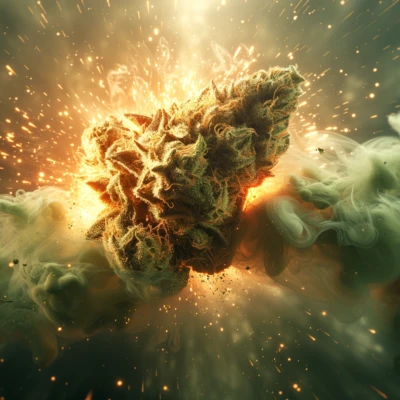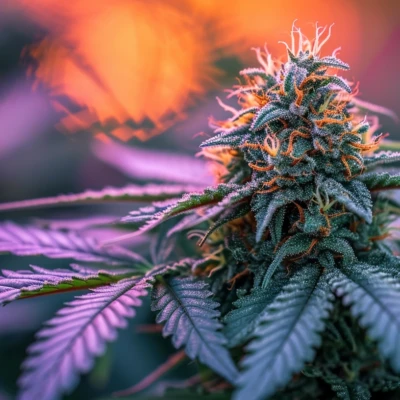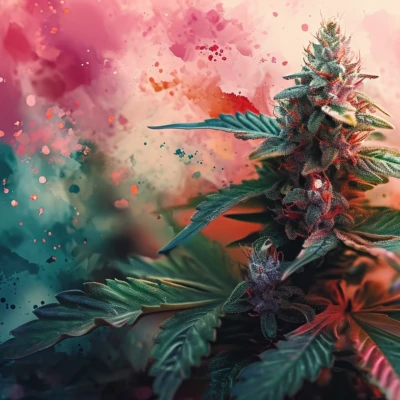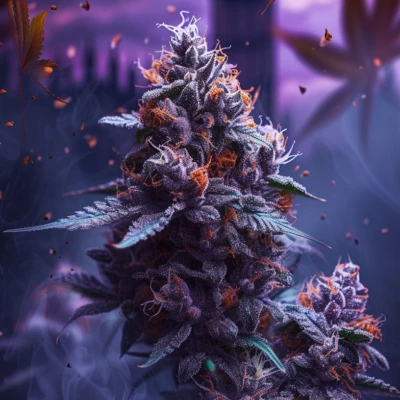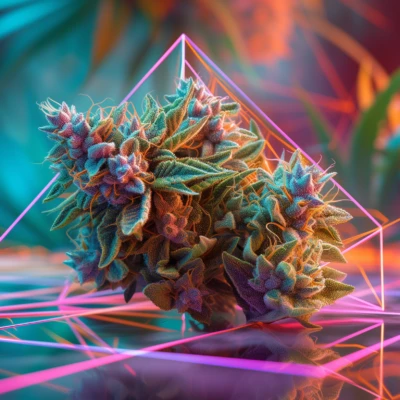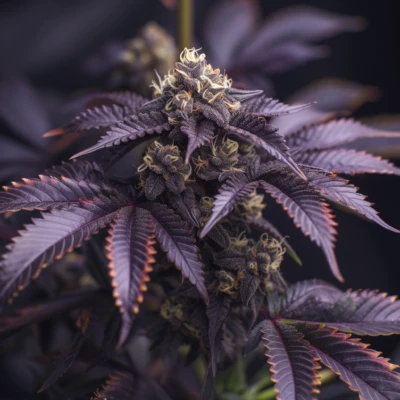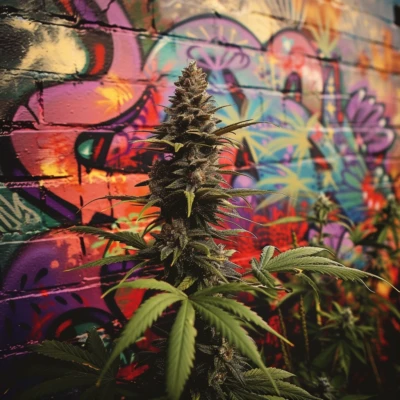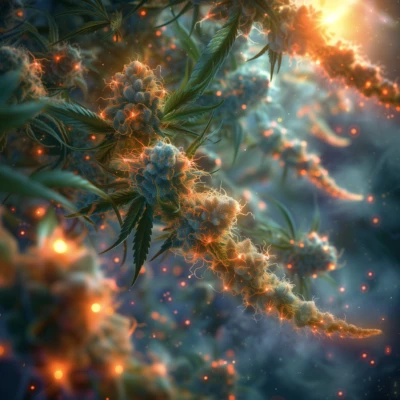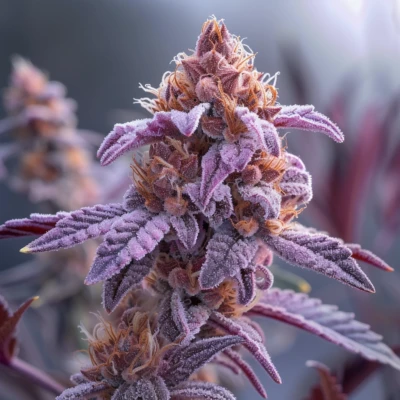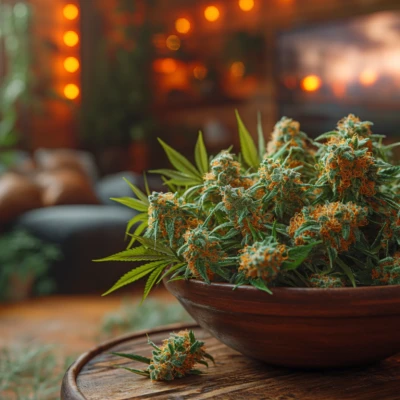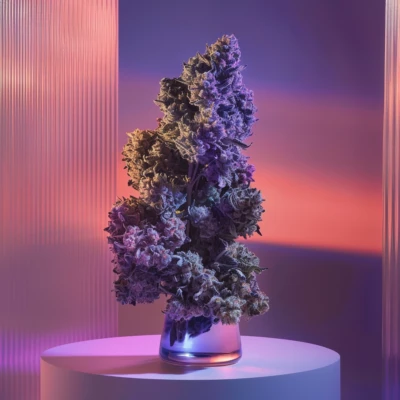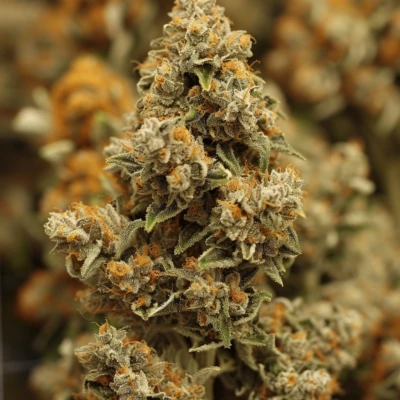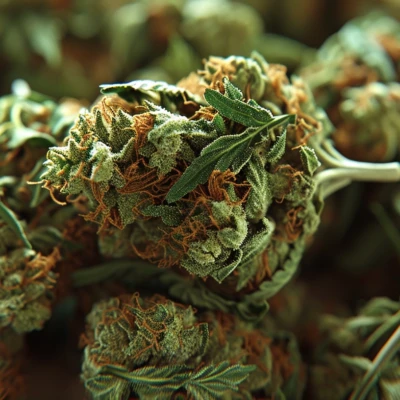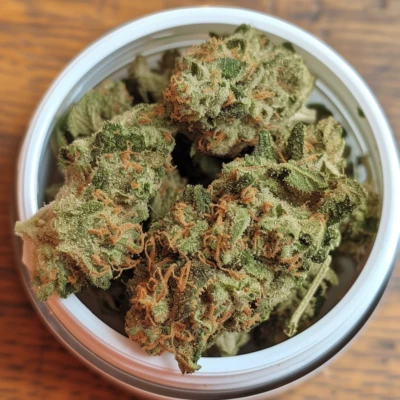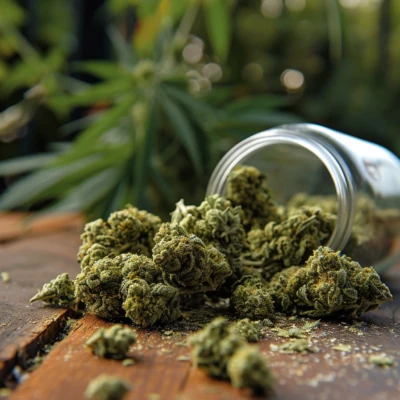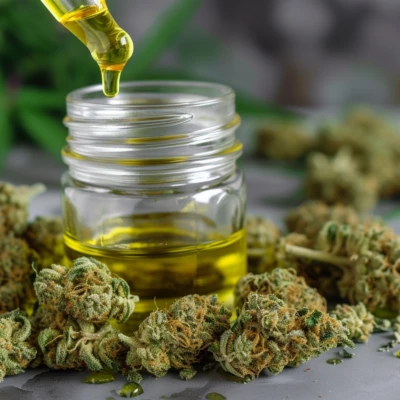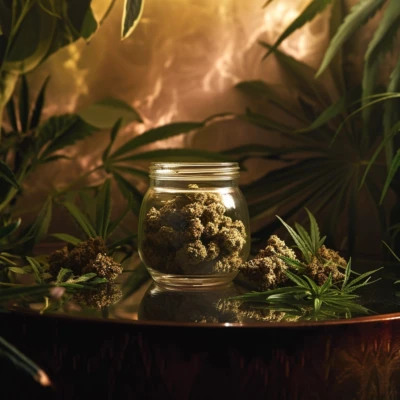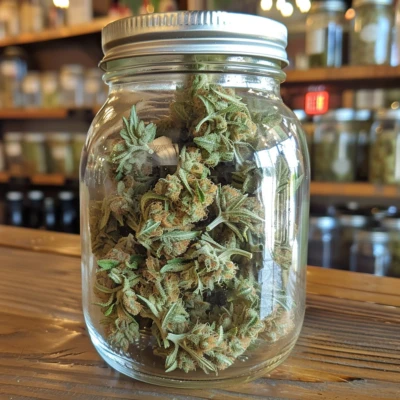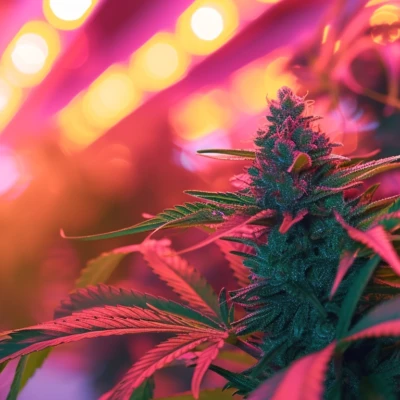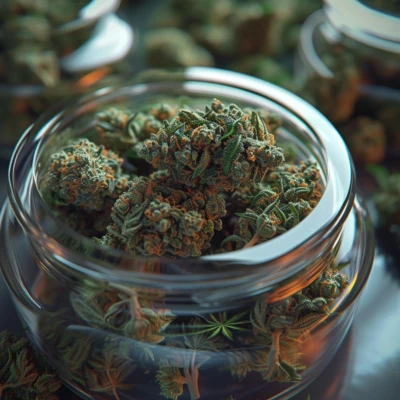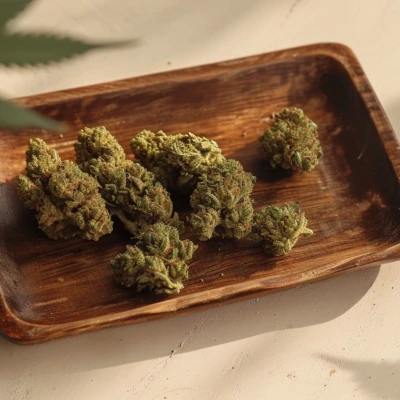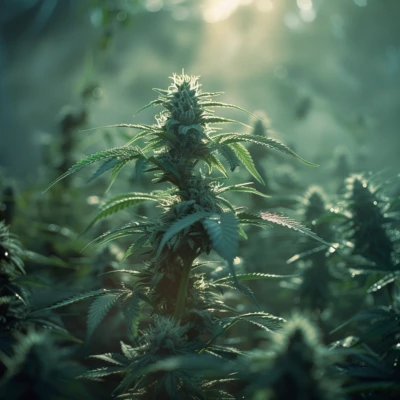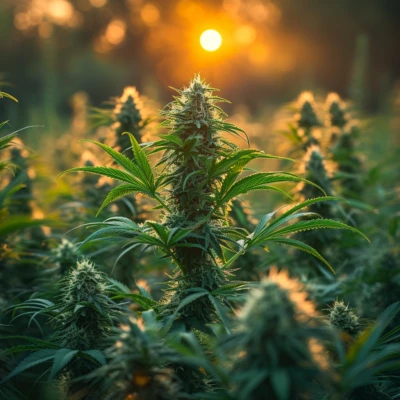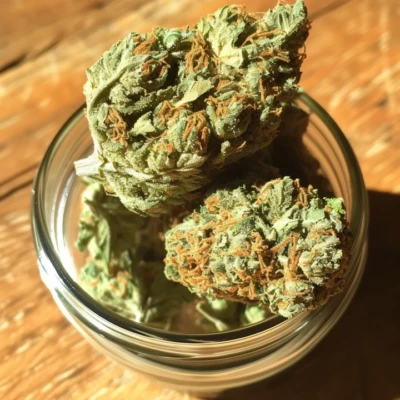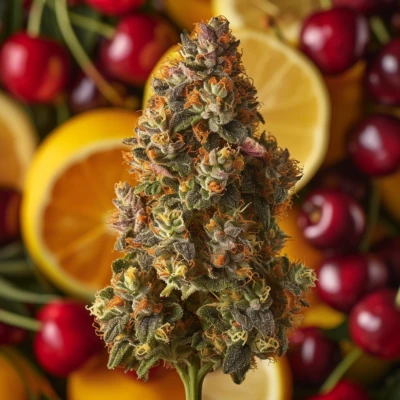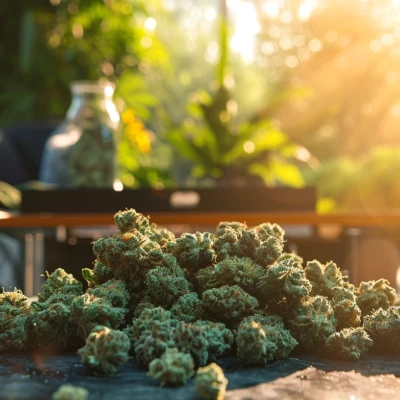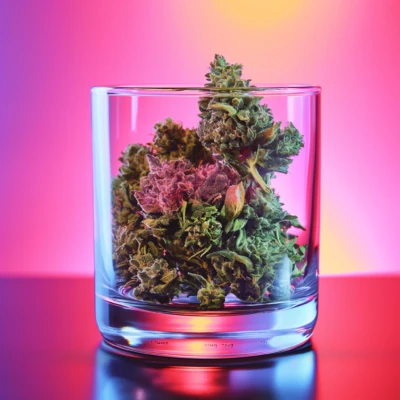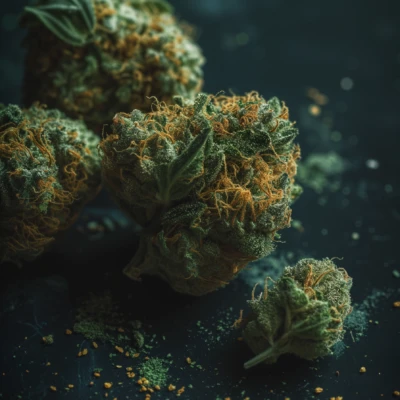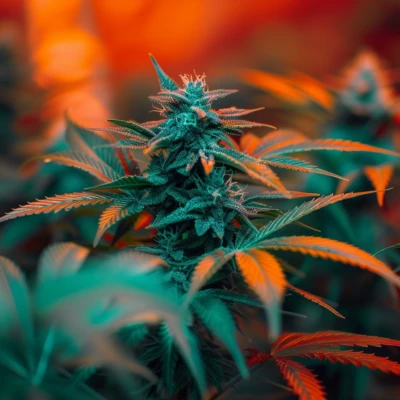THCa Products
An Introduction to THCa
Today, we’re diving into the fascinating world of cannabinoids, particularly focusing on one of the most prominent compounds found in the cannabis plant: tetrahydrocannabinolic acid, commonly known as THCa.
Before we delve deeper into THCa, let’s start with the basics. Cannabis, as many of you might know, is a plant that has been used for various purposes for thousands of years, ranging from medicinal to recreational and industrial uses. What makes cannabis so intriguing are the compounds it contains, known as cannabinoids, which interact with the human body’s endocannabinoid system.
Now, let’s zoom in on THCa. THCa is a precursor to delta-9-tetrahydrocannabinol (THC), which is the primary psychoactive compound in cannabis responsible for its euphoric effects. Unlike THC, which is well-known for its psychoactive properties, THCa does not produce intoxicating effects in its raw form. Instead, it’s found in fresh, raw cannabis plants, and it’s only when the plant undergoes decarboxylation, a process typically activated by heat, that THCa converts into THC.
One of the most significant aspects of THCa is its potential therapeutic benefits. While research is still ongoing, preliminary studies suggest that THCa may possess anti-inflammatory, neuroprotective, and antiemetic properties. These potential medicinal properties have led to increased interest in exploring THCa as a treatment for various health conditions, including chronic pain, inflammation, and nausea.
It’s important to note that THCa is just one of over a hundred cannabinoids found in cannabis, each with its own unique properties and potential benefits. Research into these compounds is continually evolving, shedding more light on their therapeutic potential and how they interact with the human body.
In conclusion, THCa serves as a crucial component of the cannabis plant, offering potential therapeutic benefits without the intoxicating effects commonly associated with THC. As we continue our exploration of cannabinoids, we’ll delve deeper into their mechanisms of action, therapeutic potential, and the evolving landscape of cannabis research.
Let’s keep our minds open as we journey through this fascinating topic together!
The Chemistry
1. Molecular Structure of THCa:
THCa is a cannabinoid, which means it’s one of the chemical compounds found in cannabis. At its core, THCa consists of carbon, hydrogen, and oxygen atoms arranged in a specific molecular structure. Its chemical formula is C22H30O4.
THCa belongs to a class of compounds known as carboxylic acids. What sets THCa apart from its well-known derivative, THC (delta-9-tetrahydrocannabinol), is an additional carboxyl group (COOH) attached to its molecular structure. This carboxyl group is crucial because it’s what distinguishes THCa from THC and affects its properties, including its psychoactivity.
2. Decarboxylation:
Now, here’s where things get interesting. While THCa itself isn’t psychoactive, it can become THC through a process called decarboxylation. Decarboxylation occurs when heat is applied to THCa, causing it to lose a carboxyl group (CO2) and transform into THC. This process can happen naturally over time as cannabis plants dry and age, but it’s typically accelerated by applying heat, such as through smoking, vaporization, or cooking.
3. Interaction with the Endocannabinoid System:
THCa and THC interact with the endocannabinoid system (ECS) in the human body, albeit in slightly different ways. The ECS is a complex network of receptors found throughout the body, including the brain, nervous system, organs, and immune cells. When cannabinoids like THC or THCa interact with these receptors, they can influence various physiological processes, including mood, appetite, pain perception, and memory.
However, THCa’s interaction with the ECS is still being studied. Unlike THC, which directly binds to cannabinoid receptors, THCa is believed to interact with the ECS indirectly, possibly through modulation of enzyme activity or other signaling pathways. Research into THCa’s specific mechanisms of action and potential therapeutic effects is ongoing and exciting.
4. Therapeutic Potential:
While THCa doesn’t produce the psychoactive effects associated with THC, it may offer its own therapeutic benefits. Preliminary research suggests that THCa may have anti-inflammatory, neuroprotective, and antiemetic properties. This has led to growing interest in exploring THCa as a potential treatment for conditions such as chronic pain, inflammation, epilepsy, and nausea.
In conclusion, THCa is a fascinating cannabinoid with its own unique chemistry and potential therapeutic properties. Understanding its molecular structure, transformation into THC through decarboxylation, and interaction with the endocannabinoid system provides a foundation for exploring its role in cannabis science and medicine.
As researchers continue to unravel the complexities of cannabinoids like THCa, we’re poised to gain deeper insights into their potential benefits and applications in healthcare. Let’s stay curious and engaged as we journey through the dynamic field of cannabis chemistry together!
Effects of THCa
“THCA primarily exhibits non-psychoactive effects in its raw form, potentially offering anti-inflammatory, neuroprotective, and antiemetic properties. However, research on its specific effects is ongoing and may vary depending on individual physiology and dosage.” ~ Jason Kilmer
Feelings: Creative Uplifted Energetic Giggly Hunger Stones
Negatives: Dry Mouth Paranoid Dry Eyes Sleep and Calm
Helps with: Stress Anxiety Depression Appetite and Sleep
Research Articles on THCa
- Structure and function of∆ 1-tetrahydrocannabinolic acid
- Tetrahydrocannabinolic acid is a potent PPARγCan You Pass the Acid Test? Critical Review and
- Novel Therapeutic Perspectives of Δ9-Tetrahydrocannabinolic Acid
- Tetrahydrocannabinolic acid A (THCA-A) reduces adiposity and prevents metabolic disease caused by diet-induced obesity
- Taming THC: potential cannabis synergy and phytocannabinoid‐terpenoid entourage effects
History
THCA, or tetrahydrocannabinolic acid, is a compound found in cannabis plants that eventually converts to THC when exposed to heat. This process is known as decarboxylation, which occurs when you smoke, vaporize, or cook cannabis. Originating from the Cannabis sativa plant, THCA was discovered in 1964 by scientists at the Weizmann Institute of Science in Israel. It is not psychoactive on its own, meaning it does not produce the “high” effect associated with THC. However, THCA is believed to have potential medicinal properties and has gained attention in the medical cannabis community for its anti-inflammatory and neuroprotective properties.
Research on THCA is still ongoing, but studies have shown promising results in treating conditions such as epilepsy, neurodegenerative diseases, and autoimmune disorders. Moreover, some people consume raw cannabis or cannabis juice to benefit from THCA without experiencing the psychoactive effects of THC. As the legalization and acceptance of cannabis use continue to grow globally, more research and information about THCA and its potential health benefits are expected to emerge.
Pharmacology
THCA, short for tetrahydrocannabinolic acid, is a compound found in the cannabis plant that is known for its potential therapeutic effects. When raw cannabis is consumed or exposed to heat, THCA undergoes a process called decarboxylation, where it loses a carboxyl group and transforms into THC, the psychoactive compound most commonly associated with cannabis. THCA is non-intoxicating, meaning it does not produce the “high” typically associated with marijuana consumption.
Research suggests that THCA may possess anti-inflammatory, neuroprotective, and anti-nausea properties. It has also shown promise in potentially reducing inflammation and pain, making it a subject of interest in the field of pharmacology. However, more studies are needed to fully understand the pharmacological effects and potential benefits of THCA.
If you are interested in learning more about the pharmacology of THCA and its potential medicinal properties, you can explore scientific journals, research articles, and reputable sources such as the National Center for Complementary and Integrative Health (NCCIH) of the National Institutes of Health (NIH). They provide valuable information on the research and studies conducted on cannabinoids like THCA and their effects on the body.
Common Questions about THCa (FAQ)
What is THCa vs THC?
How long does THCa last in your system?
How is THCA flower made?
Which is stronger, THCa or THC?
What does THCa do to the brain?
What is a high THCa percentage?
Does THCa turn into Delta 9 when smoked?
How is THCa legal?
What are the effects of smoking THCa?
Is THCa safe for driving?
Does thca get you high when smoked?
How do you smoke THCa flower?
Popular and Recreational Use
THCa is gaining interest for its potential health benefits. In its raw form, it’s believed to offer anti-inflammatory, neuroprotective, and anti-proliferative properties. This has turned the attention to raw cannabis juicing or incorporating raw cannabis in salads as a dietary supplement. On the recreational side, enthusiasts are exploring THCa for its novelty and potential mild effects when included in their regimen. Some cannabis consumers are particularly intrigued by THCa’s potential to deliver benefits without the intoxication, making it a focus for those who wish to remain clear-headed and active. As the cannabis market continues to evolve, the popularity of THCa, particularly in legal areas, is likely to grow as users seek more diverse and tailored cannabis experiences.
Beyond its potential health benefits, THCa has also found a niche in the realm of recreational cannabis use, particularly among those looking for a subtler or alternative experience. In places where cannabis has been legalized, you can now find products specifically showcasing THCa, typically in the form of concentrates like shatter, resin, or crystalline. Recreational users may opt for THCa products to enjoy a lighter effect, especially those new to cannabis or who are sensitive to the stronger effects of THC. Additionally, some experienced users incorporate THCa into their routine to tweak their cannabinoid ratios and tailor their experiences. This ability to customize effects without the high associated with THC adds a versatile tool to the recreational cannabis user’s arsenal, allowing for a more controlled and personalized cannabis experience.
Legality in the United States
In the United States, the legality of THCa is somewhat complex. THCa itself is not scheduled under the Controlled Substances Act, which governs the legality of drugs. However, when THCa is heated, it undergoes a process known as decarboxylation and converts into THC, which is a Schedule I controlled substance. This creates a gray area around the legality of THCa. In states where cannabis is legal, products containing THCa are generally permitted under certain regulations. In contrast, in states where cannabis remains illegal, any product containing THCa could potentially be deemed illegal if it is considered to be capable of being converted into THC.
It’s important for consumers to be aware of the legal nuances in their specific locality. Always check the current laws in your state and any state you may be visiting if you intend to possess cannabis products. The legal landscape around cannabis and its derivatives continues to evolve, so staying informed is key. While THCa may offer potential health benefits without the psychoactive effects, its legal status must be considered to navigate its use effectively and legally.
THCa Photos
Research and Addiction
In the burgeoning field of cannabis research, one cannabinoid that is attracting particular interest is tetrahydrocannabinolic acid, commonly known as THCa. This non-psychoactive precursor to THC (tetrahydrocannabinol) is found naturally in the raw cannabis plant and has sparked curiosity among scientists due to its unique properties and potential health benefits.
What sets THCa apart is its non-psychoactive nature; it doesn’t produce the high associated with THC. This makes THCa a promising candidate for medicinal uses, as it could potentially offer the benefits of cannabinoids without the psychoactive effects that might be undesirable for some patients. Research into THCa has been looking into its potential anti-inflammatory, neuroprotective, and anti-proliferative effects. These studies suggest that THCa could be beneficial in treating a range of conditions, from inflammatory diseases like arthritis to neurodegenerative disorders.
However, as is the case with many aspects of cannabinoid research, the study of THCa is still in its infancy, and much remains to be understood. One intriguing area of investigation is the addiction profile of THCa. Given its non-psychoactive status, preliminary insights suggest that THCa does not induce the euphoric effects that are typically associated with addiction. This aspect could greatly enhance its therapeutic profile, allowing patients to gain the medicinal benefits of cannabis without a significant risk of addiction. However, more comprehensive studies are needed to fully understand its addiction potential and therapeutic window. As the legal landscape around cannabis continues to evolve, it is hoped that increased research will clarify the full spectrum of THCa’s properties and how they might be harnessed for health benefits.
By diving deeper into the mechanisms and effects of THCa, scientists are paving the way for potentially groundbreaking treatments that could alter the way we approach a multitude of ailments. The promise of THCa in medical science represents just another chapter in the expanding story of cannabis research, offering hope that the plant’s full potential is yet to be fully realized.
The risks of using THCa
As we continue to explore the vast landscape of cannabis and its multitude of compounds, THCa, or tetrahydrocannabinolic acid, is gaining attention not only for its potential therapeutic benefits but also for its inherent risks that warrant a deeper look. THCa is a non-psychoactive precursor found in raw and live cannabis. As the plant dries, THCa slowly converts to THC, the compound primarily responsible for the psychoactive effects associated with marijuana use.
While THCa itself isn’t intoxicating, the process of decarboxylation, which can occur through drying, curing, or applying heat, transforms THCa into THC. The potential dangers mainly arise post-decarboxylation. Consumed in its activated form, THC can lead to several psychoactive effects ranging from altered perception to cognitive impairments and can potentially exacerbate or contribute to mental health disorders in predisposed individuals. These effects are particularly concerning in the context of unregulated or inappropriate use, where the dosage of THC can exceed what is considered therapeutic and safe.
Moreover, the transformation of THCa to THC isn’t just a concern for recreational usage but also impacts medicinal applications. Patients using cannabis for medical reasons must be exceedingly cautious about the composition and storage of their cannabis to avoid unexpected psychoactive effects. As research continues to disentangle the complexities of cannabis and its components, understanding the dynamics of THCa and its transformation into THC is critical for both consumers and healthcare providers to ensure safety and efficacy in its use.
Links to websites that have more info on THCa.
What people are saying about THCa.
THCa Review by James
James, age 34: “I started using THCA for its potential anti-inflammatory benefits. I’ve noticed a significant decrease in my joint pain, especially in the mornings. It doesn’t have the psychoactive effects of THC, which is great because I can use it during my workday without any issues.”
Marketing Specialist
THCa Review by Samantha
Samantha, age 28: “I’ve been experimenting with THCA in my post-workout routine. It’s been great for muscle recovery and doesn’t make me feel high, which I really appreciate. I blend it into my smoothies and have found it quite effective.”
SAHM
THCa Review by Eduardo
Eduardo, age 45: “As someone who’s been looking into alternative therapies for my chronic pain, THCA has been a revelation. It helps manage my pain without any psychoactive effects. It’s been a part of my daily regimen for months now.”
Electrician
THCa Review by Natalie
Natalie, age 52: “I use THCA to help with my arthritis. It’s one of the few things that helps without making me feel out of it. I apply a topical that includes THCA, and it eases the stiffness and pain quite effectively.”
Secretary

